#lack of scientific accuracy
Text
examining a seemingly normal image only to slowly realize the clear signs of AI generated art.... i know what you are... you cannot hide your true nature from me... go back where you came from... out of my sight with haste, wretched and vile husk
#BEGONE!!! *wizard beam blast leaving a black smoking crater in the middle of the tumblr dashboard*#I think another downside to everyone doing everything on phone apps on shitty tiny screens nowadays is the inability to really see details#of an image and thus its easier to share BLATANTLY fake things like.. even 'good' ai art has pretty obvious tells at this point#but especially MOST of it is not even 'good' and will have details that are clearly off or lines that dont make sense/uneven (like the imag#of a house interior and in the corner there's a cabinet and it has handles as if it has doors that open but there#are no actual doors visible. or both handles are slightly different shapes. So much stuff that looks 'normal' at first glance#but then you can clearly tell it's just added details with no intention or thought behind it. a pattern that starts and then just abruptly#doesn't go anywhere. etc. etc. )#the same thing with how YEARS ago when I followed more fashion type blogs on tumblr and 'colored hair' was a cool ''''New Thing''' instead#of being the norm now basically. and people would share photos of like ombre hair designs and stuff that were CLEARLY photoshop like#you could LITERally see the coloring outside of the lines. blurs of color that extend past the hair line to the rest of the image#or etc. But people would just share them regardless and comment like 'omg i wish I could do this to my hair!' or 'hair goallzzzz!! i#wonder what salon they went to !!' which would make me want to scream and correct them everytime ( i did not lol)#hhhhhhggh... literally view the image on anything close to a full sized screen and You Will SEe#I don't know why it's such a pet peeve of mine. I think just as always I'm obsessed with the reality and truth of things. most of the thing#that annoy me most about people are situations in which people are misinterpreting/misunderstanding how something works or having a misconc#eption about somehting thats easily provable as false or etc. etc. Even if it's harmless for some random woman on facebook to believe that#this AI generated image of a cat shaped coffee machine is actually a real product she could buy somewhere ... I still urgently#wish I could be like 'IT IS ALL AN ILLUSION. YOU SEE???? ITS NOT REALL!!!!! AAAAA' hjhjnj#Like those AI shoes that went around for a while with 1000000s of comments like 'omg LOVE these where can i get them!?' and it's like YOU#CANT!!! YOU CANT GET THEM!!! THEY DONT EXIST!!! THE EYELETS DONT EVEN LINE UP THE SHOES DONT EVEN#MATCH THE PATTERNS ARE GIBBERISH!! HOW CAN YOU NOT SEE THEY ARE NOT REAL!??!!' *sobbing in the rain like in some drama movie*#Sorry I'm a pedantic hater who loves truth and accuracy of interpretation and collecting information lol#I think moreso the lacking of context? Like for example I find the enneagram interesting but I nearly ALWAYS preface any talking about it#with ''and I know this is not scientifically accurate it's just an interesting system humans invented to classify ourselve and our traits#and I find it sociologically fascinating the same way I find religion fascinating'. If someone presented personality typing information wit#out that sort of context or was purporting that enneagram types are like 100% solid scientific truth and people should be classified by the#unquestionaingly in daily life or something then.. yeah fuck that. If these images had like disclaimers BIG in the image description somewh#re like 'this is not a real thing it's just an AI generated image I made up' then fine. I still largely disagree with the ethics behind AI#art but at least it's informed. It's the fact that people just post images w/o context or beleive a falsehood about it.. then its aAAAAAA
25 notes
·
View notes
Text
Bear traps weren't invented until the 1900's if I'm not mistaken, yet they still make an appearance in the musketeers
#the musketeers#bbc musketeers#bear trap#historical inaccuracies#makes for good story at least#im watching salvation and I've forgiven that for it's blatant lack of scientific accuracy#I can do the same for a better show
5 notes
·
View notes
Text
scientific study on the void state
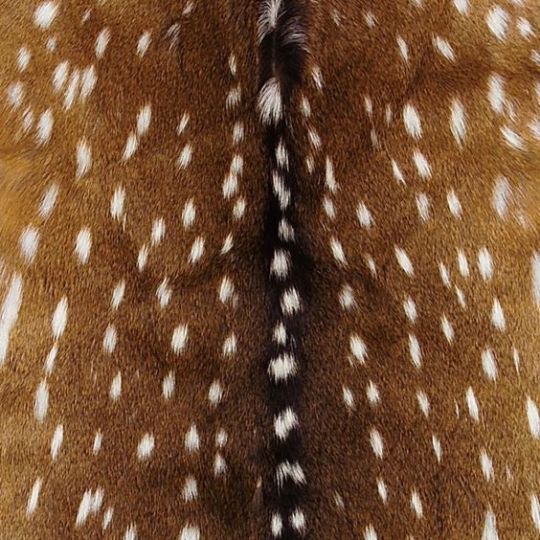
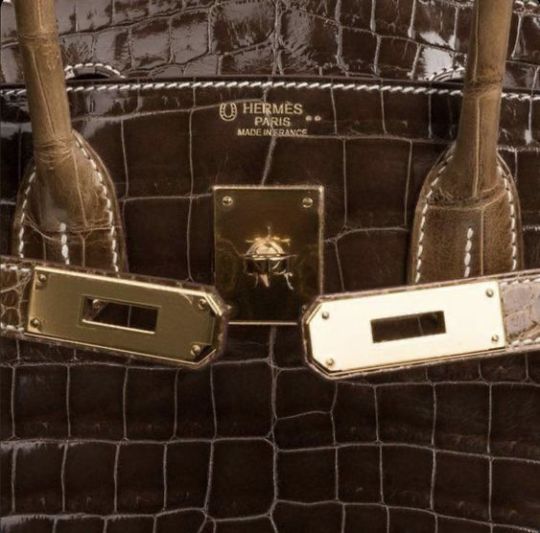


For decades, people have thought sleeping is a momental period or pause where both the body and mind is asleep. When I stopped remembering my dreams, I recalled seeing just pitch black in my sleep, and I never thought much about it until I started getting into the void and loa in general. It’s strange how my mind remembered those moments of nothingness and pure darkness, they were briefly short but I came to the conclusion that every single one of us has been in a void state. Whether or not you remembered it, maybe you do, maybe for a split second you were enveloped in pitch blackness till you woke up. Most of us brush off these strange phenomenals, but here’s the real question: Is it possible to be aware in your sleep? The answer is yes, our subconscious mind is fully awake even in your sleep. I think one of the most interesting scientific experiments I’ve read was an interview in 2022, it explores the ‘objectless awareness’ in our sleep.

There were about 38 participants in the experiment, in which they were given a word to mentally spell and then they were interviewed based on that specific spelling. This is to measure participant’s memory accuracy, just to make sure they didn’t fabricate or make up any descriptions in the experiment. When participants pass the first round, they are given a survey if they have experiences of being conscious in their sleep. The result is that some participants recalled to lack any bodily sensations or imagery, one person reported that they lost the sense of being ‘themself’ but they identified as a ‘light’ or ‘orb’. Another person reported that after being in the state of nothingness, they were shaken up and brought to another ‘dream scenery’. Others recalled that their thoughts were completely non-existent in this state and they are aware of being ‘transitioned’ to what they called the ‘black spot’ and ‘nothingness state’.
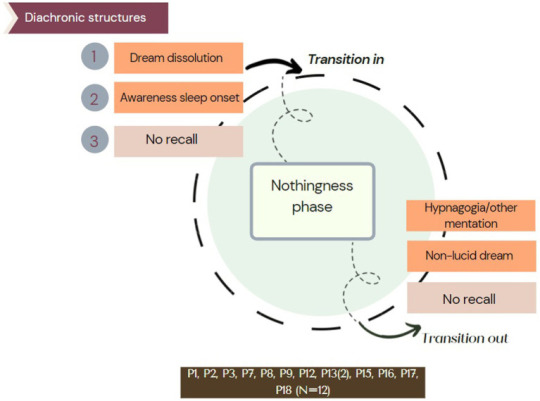
The chart summarizes what the participants experience in their sleep, the ‘nothingness phase’ seems to be the middle ground between regular sleeping state, to hypnagogia (transition between being awake and sleep, you experience sleep paralysis and muscle jerks in this stage). Most participants were unable to recall what happened after they transitioned out of the ‘nothingness phase’. The following is what they said:
Participant 1
"So, this sensation of nothing was letting me know that I was still in a dream, because I made the comparison to, I cannot feel any of my limbs. So, I know that I’m not just in bed right now with my eyes closed. Because none of my body’s there."
Participant 2
"I no longer have an idea of a body.. a dream body at that point. And then I [emphasis] became or was this just like this little ball of light, […]. So like I knew that the sphere of light was ME, but also like the light that was around the sphere was me, […] Once I become the sphere, you are asking if I have any body perception? I do not have any at that point […] having a dream body is just completely gone."
Participant 9
“And then, and then all of a sudden, there was just nothing I could not, I’ve gone from, from my body, I guess. And I’ve had other bodies before and this felt very, very, very different where I did not like there was no dream body, no dream scene. No, no ANYTHING. It almost seems like a form about a body. But it almost seems like you are, you are caught between, caught between somewhere where you are trying to get in and the physical, you are, you are somewhere else. […] And so, so I was able to feel that I guess.”
Participant 8
“It’s more like I was the void. ”
Participant 12
" It’s just total darkness. And you…, there’s very little difference between you and what’s around you. ”

Well didn’t that blow your mind away? This probably raises more questions on more phenomenal that modern science has no idea about, considering the fact that we just discovered our sense of awareness is still on even in our sleep.

Citation
Alcaraz-Sánchez A, Demšar E, Campillo-Ferrer T, Torres-Platas SG. Nothingness Is All There Is: An Exploration of Objectless Awareness During Sleep. Front Psychol. 2022 Jun 10;13:901031. doi: 10.3389/fpsyg.2022.901031. PMID: 35756253; PMCID: PMC9226678.
#loa blog#loa tumblr#void state#loassumption#law of assumption#manifesation#neville goddard#shifting motivation#shifting community#shifting blog#reality shifting#dividers by fairytopea / credit in tags if used
1K notes
·
View notes
Text




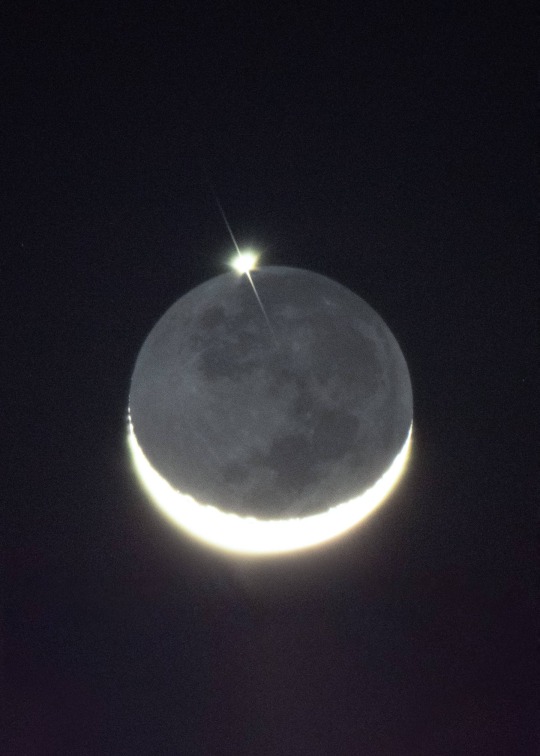

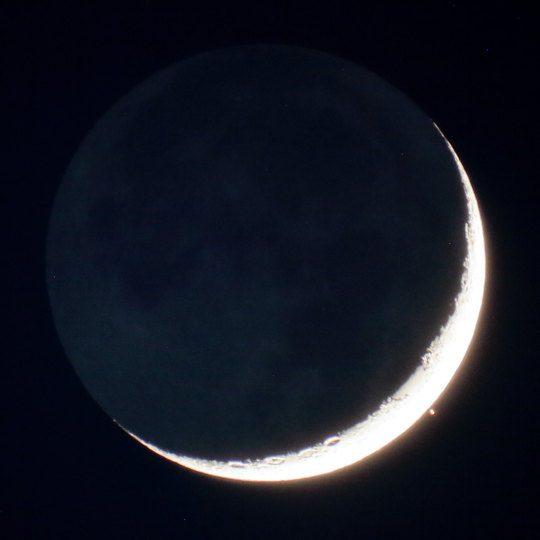
Occultations by the Moon
The term occultation is most frequently used to describe lunar occultations, those relatively frequent occasions when the Moon passes in front of a star during the course of its orbital motion around the Earth. Since the Moon, with an angular speed with respect to the stars of 0.55 arcsec/s or 2.7 μrad/s, has a very thin atmosphere and stars have an angular diameter of at most 0.057 arcseconds or 0.28 μrad, a star that is occulted by the Moon will disappear or reappear in 0.1 seconds or less on the Moon's edge, or limb. Events that take place on the Moon's dark limb are of particular interest to observers, because the lack of glare allows easier observation and timing.
The accurate timing of lunar occultations is performed regularly by (primarily amateur) astronomers. Lunar occultations timed to an accuracy of a few tenths of a second have various scientific uses, particularly in refining our knowledge of lunar topography.
source
image credit: Tom Fleming, Elias Chasioti, Delberson Souza, Bob Schiff, Fausto Lubatti, Sergio Scauso
1K notes
·
View notes
Text
Autistic Spencer Reid
Happy Autism Acceptance Month, everyone! By request, my wonderful friends and I have taken on the daunting task of documenting the reasons why Spencer Reid is considered Autistic. Big thank you to you @spencer-reids-adventures and @foxy-eva specifically for their help. We hope everyone enjoys! This is not an exhaustive list.
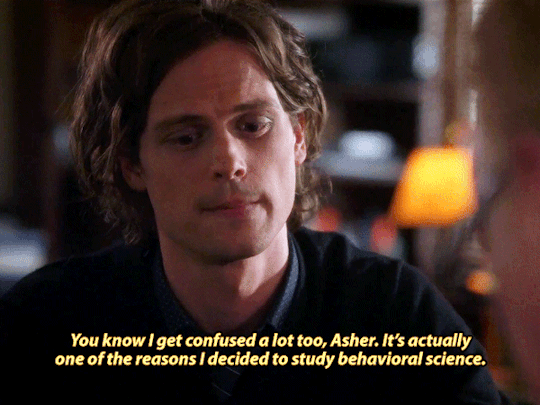
Stimming/Self-Stimulatory behavior, including rocking/spinning in his chair, twiddling with his fingers, gripping sheets, bouncing his legs, biting his lip/tongue, rubbing his eyes, spinning pens, pacing (e.g., S6E12 "Corazon")
Averse to touch, dislikes hugs (S7E13 "Snake Eyes" & S11E11 "Entropy")
Explains multiple attempts at masking, including "being more conversational," (S2E19 "Ashes and Dust"), scripting conversation (S15E4 "Saturdays"), saying what people want to hear (S6E20 "Hanley Waters")
Verbosity - Difficulty recognizing when he's talking too much/speaking at inappropriate times (e.g., S1E16 "The Tribe" & S10E16 "Lockdown")
Began studying behavioral science to understand behavior that made him frustrated/confused (S11E22 "The Storm")
Averse to hosting/hanging out in his space; didn't invite his friends to his apartment for over 15 years (S15E9 "Face Off")
The only team member capable of proficient communication with other Autistic people (S6E16 "Coda" & S11E22 "The Storm")
He is referred to as Autistic by multiple characters, including a literal profiler, and does not deny or question it (S1E5 "Broken Mirror" & S8E3 "Through the Looking Glass")
Lack of social awareness, such as focusing on a convention while at a workplace shooter crime scene (S7E3 "Dorado Falls")
Various special interests, like Doctor Who (S6E16 "Coda" & S7E23 "Hit")
Literal thinking, such as focusing on scientific accuracy of a star-based fable (S5E13 "Risky Business")
Difficulty recognizing common phrases, such as the "sitting in a tree" song (S3E14 "Damaged") or jokes (S7E9 "Self-Fulfilling Prophecy" & S1E8 "Natural Born Killer")
Makes inappropriate references, such as to Derek's playboy behavior (S1E18 "Somebody's Watching") and Rossi's age (S7E13 "Snake Eyes")
Coordination/Spatial deficits (S1E17 "A Real Rain" & S8E6 "The Apprenticeship")
Hyperfocuses on a task to the point he doesn't notice his surroundings (S5E20 "A Thousand Words")
Unusual/hyper-specific pedantic language (S3E6 "Remembrance of Things Past")
Resistance to change, manifested as a luddite dislike of technology (S6E7 "Middle Man" & S8E4 "God Complex") and struggling with Gideon's death (S10E14 "Hero Worship")
He receives (apparent disability) accommodations to be in the field (S6E10 "What Happens At Home...")
Introverted, difficulty sharing emotions, even with his closest friends (S10E13 "Nelson's Sparrow")
Heavily bullied as a child (S3E16 "Elephant's Memory")
Difficulty making friends (S2E1 "The Fisher King Part 2")
Trouble with eye contact, which persists throughout the series
His mother is schizophrenic, which has a strong genetic link to Autism
Dislikes small talk (S8E3 “Through the Looking Glass”)
Enjoys memorizing lists (S7E11, “True Genius”)
Savant skills - eidetic memory and hyperlexia
Matthew Gray Gubler has also explained that, regardless of the canonical confirmation, he views and portrayed Spencer Reid as Autistic. Specifically, he stated:
"He's an eccentric genius, with hints of schizophrenia and minor autism, Asperger's syndrome. Reid is 24, 25 years old with three Ph.D.'s and one can't usually achieve that without some form of autism." (Note: Asperger's is an outdated term with Nazi origins, which is now referred to as a part of "Autism Spectrum Disorder" by most countries)
DISCLAIMER: I am Autistic, as diagnosed when I was a toddler. These thoughts are my own and shared for fun. If you disagree, please make your own post about it rather than posting them here. This was a labor of love for fans like me and those who love Autistic people and the characters like us. Thank you for respecting and understanding my boundaries!
Looking for more to read? Check out my Autistic headcanon posts for Penelope and Hotch!
Thank you everyone! 🌈♾️❤️

#spencer reid#autistic spencer reid#spencer reid autism#autism acceptance month#autism acceptance day#world autism day#spencer reid fanfiction#spencer reid fanfic#spencer reid criminal minds#spencer reid headcanons#spencer reid character study#dr spencer reid
1K notes
·
View notes
Text

— Pinnacle [ tsukishima kei university au series ]
— i got wasted like all my potential ; after your repeated mistakes, struggles with the lab work, and lack of progress, tsukishima scolds you harshly till you’re breaking down in front of him
author’s notes : no mention of (y/n), written in second person pov, semi alternative universe, timeskip!tsukishima, college life, not proofread, english is not my first language
[ masterlist ] | #daleelahwritings🐭
The air in the lab was always thick with the scent of chemicals, the hum of equipment, and the nervous energy of students trying to avoid mistakes. Each week, the practicum grew more complex. What started as simple measurements and basic reactions quickly escalated into multi-step processes that demanded precision and a deep understanding of biochemistry—both of which you struggled with.
Today’s experiment involved a protein extraction procedure. The lab instructions were dense with scientific jargon that made your head spin. You reread the steps multiple times, trying to make sense of them, but it was like trying to decipher a foreign language. Around you, your classmates were already setting up their stations with practiced ease, moving in groups they had long since formed. You couldn’t help but notice how seamlessly they worked together, exchanging tips and helping each other out.
You glanced over at Tsukishima, who was busy assisting another group with the accuracy of their results. He looked so calm and collected, his tall figure standing out as he leaned over to explain something with a level of patience that was hard to reconcile with the way he always seemed to snap at you.
Determined not to mess up again, you carefully measured out the reagents, trying to remember everything Tsukishima had scolded you about last time. But as you transferred the solution into the centrifuge, your hand slipped, and the liquid spilled across the countertop. Panic surged through you as you frantically tried to clean up the mess, knowing that this mistake would not go unnoticed.
And it didn’t.
Tsukishima’s shadow fell over your station, and you froze, your heart pounding. He let out a long sigh, his frustration palpable. “Are you even trying to read the instructions?” His voice was low but edged with irritation. “I showed you this step just last week. How could you mess it up again?”
You bit your lip, tears threatening to well up in your eyes. The entire class seemed to have paused, all too familiar with the routine by now—another day, another scolding. It felt like everyone was waiting for you to break under the pressure, to finally admit that you didn’t belong here.
But Tsukishima, as harsh as he was, didn’t walk away. Instead, he grabbed another set of reagents and started the process from scratch. “Pay attention this time,” he muttered, demonstrating the steps once more. He moved with the precision and confidence of someone who had done this countless times before. “You need to stop being so careless. This isn’t something you can just half-ass.”
His words stung, but you nodded, forcing yourself to focus on what he was doing. He had a way of making you feel like a complete idiot, yet there was something in the way he didn’t just abandon you that kept you from giving up entirely.
As he handed the equipment back to you, his gaze softened slightly. “If you keep making the same mistakes, you’ll never get this. You need to practice more, or you’re going to fail.”
“I’m trying,” you whispered, your voice trembling. “I really am.”
“Try harder,” he snapped, but his tone lacked the usual bite. You couldn’t tell if he was genuinely angry or just tired of seeing you struggle. He watched as you completed the step under his supervision, nodding slightly when you finally managed to do it correctly.
Over the next few weeks, the pattern continued. Each lab session brought a new challenge, and with it, more opportunities to mess up. Whether it was miscalculating concentrations, mixing up solutions, or just getting lost in the labyrinth of complex procedures, it seemed like you were always on the verge of disaster. And Tsukishima, true to form, was always there to call you out on it.
“Did you even check the pH before adding that buffer?” he asked one afternoon, his eyes narrowing as he looked over your notes. “This is basic stuff. You should know better by now.”
You hung your head, feeling the heat of embarrassment rising in your cheeks. It wasn’t just his words; it was the weight of knowing that you were disappointing him again and again.
“I’m sorry,” you muttered, not for the first time.
He sighed, rubbing the bridge of his nose. “Being sorry isn’t going to help you pass this class. Are you just trying to waste my time?”
His question hit you harder than you expected, and you could feel your throat tighten. You had spent so much time just trying to survive each practicum that you hadn’t really stopped to think about why you were doing this in the first place. But instead of answering, you chose to keep silent, hoping that maybe this time, your apology would be enough to placate him.
Tsukishima remained silent, clearly waiting for you to say more, to give him something to work with. He wanted you to argue back, to tell him what you were struggling with so he could actually help. But when all you offered was another weak, “I’m sorry,” you could see the disappointment flicker in his eyes.
He hissed with tiredness and frustration. “Well then, you’ve got your goal so perfectly. Congratulations on making me waste my time on you.” His tone was bitter, laced with a sharp edge that cut deeper than any of his previous scoldings. “If you’re just going to keep saying ‘sorry’ and not actually try to improve, then maybe you should rethink why you’re even here.”
After his scolding, Tsukishima turned away from you, leaving you to struggle on your own. The weight of his words pressed down on you, making it difficult to focus, but you forced yourself to push through. Determined not to be the failure he saw you as, you stayed long after the other students had left, methodically redoing each experiment that you had messed up earlier.
The lab was eerily quiet, the only sounds being the faint hum of the equipment and your own breath. It took hours, but eventually, you managed to complete the tasks, albeit with trembling hands and an exhausted mind.
You silently placed your lab report on Tsukishima's desk, hoping this ordeal would be over. As you turned away to return to your station and pack up, you heard him flip through the pages. His silence was unnerving, and just as you were about to make your escape, his voice, laced with irritation, stopped you in your tracks.
“Is this your idea of fixing things?” His tone was biting, and you flinched, slowly turning back to face him.
He was staring at the report with a look of deep dissatisfaction. “You’ve been here for hours, and this is the best you can do?”
You felt your heart sink. “I—I tried to—”
“Try harder!” he snapped, his frustration boiling over. He stood up, towering over you, the full weight of his height and anger making you feel small and insignificant. “Do you even care about this? Because right now, it seems like you’re wasting both your time and mine.”
You bit your lip, trying to hold back tears, but his harsh words felt like daggers. “I’m sorry…”
“Stop saying you’re sorry!” he cut you off sharply. “I don’t want apologies. I want results! Do you even understand how much effort it takes to fix your mistakes? And yet, you keep making the same ones over and over. It’s like you’re not even trying to improve.”
The tears you’d been holding back started to well up in your eyes, blurring your vision. You wanted to defend yourself, to explain that you were doing your best, but the words got stuck in your throat. All you could manage was a pathetic, “I’m trying…”
“Trying?” Tsukishima scoffed, his voice dripping with disdain. “If this is your idea of trying, then you’re hopeless. At this rate, you’re going to fail this class, and I’ll be the one who has to watch you flounder around, wasting everyone’s time.”
His words were like a punch to the gut. The tears you’d been fighting so hard to hold back finally spilled over, and you quickly looked down, not wanting him to see.
But it was too late. Tsukishima noticed, and for a moment, his expression flickered with something other than anger—maybe regret, or concern—but it was quickly masked by his frustration. “Crying isn’t going to help either,” he muttered, though his voice had lost some of its edge.
You wiped your eyes with the back of your hand, trying to steady your breathing. You wanted to disappear, to run away from his harsh gaze and never come back. But you were stuck, rooted to the spot by your own shame and helplessness.
He sighed heavily, rubbing the bridge of his nose. “You’re impossible,” he murmured, almost to himself. Then, in a quieter tone, he added, “Why are you even here if this isn’t what you want to do? If you’re just going to half-ass everything and cry whenever things get tough, then maybe you should think about whether this is the right path for you.”
That was the final straw. The weight of everything—your struggles, his harsh words, the pressure from your parents—came crashing down on you all at once. A sob broke free, and before you knew it, you were crying in earnest, the kind of crying that came from deep within, raw and uncontrollable.
Tsukishima looked alarmed, clearly not expecting this reaction. For a moment, he stood frozen, unsure of what to do. But then, awkwardly, he stepped closer to you, hesitating before finally placing a hand on your shoulder. “Hey, stop that,” he said, his voice much softer now, almost gentle. “I didn’t mean to… damn it.”
You couldn’t stop crying, no matter how much you tried to pull yourself together. The stress, the fear, the overwhelming sense of failure—it all came pouring out.
Realizing that his words had done more damage than he intended, Tsukishima, still awkward and hesitant, did the only thing he could think of to comfort you. He pulled you into a hug, his tall frame enveloping you, one hand gently rubbing your back as he murmured a quiet, “I’m sorry.”
You clung to him, the warmth of his embrace and the unexpected softness in his voice finally starting to soothe the raw edges of your emotions. Tsukishima held you, his own heart pounding in his chest, wondering how he’d let things get so out of hand.
As your sobs began to quiet, he pulled back slightly, just enough to look down at you. His usual cold demeanor was gone, replaced by an expression of concern and regret. “I shouldn’t have been so harsh,” he admitted, his voice low. “But you have to understand… I just don’t want to see you fail.”
You sniffled, wiping your eyes with your sleeve, still shaken but calmed by his unexpected kindness. “I… I’ll try harder,” you whispered, your voice trembling.
Tsukishima sighed, his hand still resting on your shoulder. “Just… don’t push yourself too hard, okay?” He paused, looking down at you with something softer in his gaze. “We’ll get through this, together.”
He sighed, letting go of you and running a hand through his hair. “Look, just… try not to take everything so personally. I’m hard on you because I want you to do well. If I didn’t care, I wouldn’t bother.”
You blinked up at him, surprised by his honesty. “You… care?”
He rolled his eyes. “Don’t read too much into it. I just don’t want to see you fail.”
Despite his words, you couldn’t help but feel a small spark of hope ignite in your chest. Maybe, just maybe, there was more to Tsukishima’s grumpy exterior than he let on. And maybe, if you kept trying, you could prove to him—and to yourself—that you were capable of more than just making mistakes.
#daleelah writings 🐭#haikyuu fluff#haikyuu x you#haikyu x reader#haikyuu au#haikyuu x reader#haikyuu#tsukishima x you#kei tsukishima x reader#tsukishima kei x reader#tsukishima kei#haikyu fluff#haikyuu fanfiction#jjk x reader
104 notes
·
View notes
Text
Blurred Lines
Ever since I watched Trolls Band Together, I had a lot of questions sticking in my brain like gum under the tables or bleachers that can’t be removed. If you ask me, I treat these plotholes like a crime scene investigation or a science experiment in the laboratory. Sorry if there is too much information and scientific facts added to it because I found out that people with ASD like me prefer logic, accuracy, and clarity to guide my judgement because they’re consistent.

With Queen Poppy and Viva, they look semi-identical based on their designs, which makes me see that they’re fraternal or identical twins. Identical twins, are meant to have identical DNA but they differ somewhat in appearance and are not the same in terms of height, physical features, and many more so yeah, that might make sense.
Maybe they were isolated from one another in the troll tree for their safety and Viva remembers Poppy more than her because she would sneak around to be with her. There wasn’t any evidence about who is older and younger but what I know is that Viva wasn’t targeted by Chef, it was Poppy instead. It might be due to Poppy’s status as the heir because I discovered that in a legal system based on primogeniture, which favors the inheritance claims of an eldest child or his or her children over the claims of other relatives, an heir apparent is generally the eldest child, who is entitled to claim the property and titles of his or her parent. While rewatching the first Trolls movie, I noticed that King Peppy, Poppy and the other trolls escaped in the morning of the Last Trollstice so Viva and the others might escaped late at the night when Chef was exiled and there were other Bergens living outside Bergen Town so Viva’s escape might’ve happened at that time. Come to think of it, some trolls are up and running when they hatched out of their eggs like ducks and horse foals (cough* cough* Tiny Diamond) and compared to us humans, troll brains absorb memories and instincts fast or faster like sponges.
Maybe Poppy doesn't remember much about Viva because she kinda looks like she has Autism and ADHD. I read that children with autism have memory challenges that hinder not only their memory for faces but also their ability to remember other kinds of information. That's the same thing I struggled with as well.
I also based this theory on my life experiences because as an eldest child myself, I experienced the things Poppy had been through as I grew older and I am shorter while Viva kinda reminds me of my younger, taller sister.
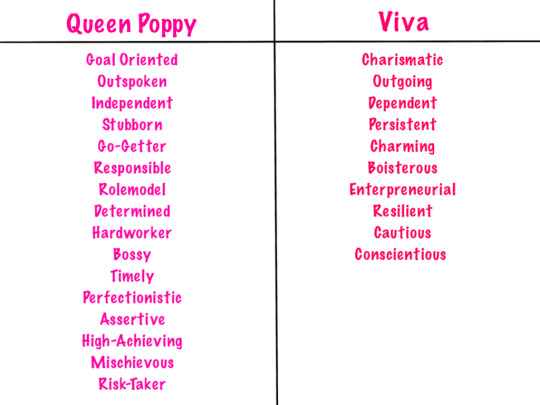
I also read about sibling psychology and discovered that Poppy has more oldest sibling traits than Viva, who has younger sibling traits. I noticed in the movies and the animated series that Poppy exhibited the traits I listed, but she only has two youngest sibling traits, evidently mischievous and risk taker while Viva has two oldest sibling traits, usually cautious and conscientious. They both share the traits of fun loving and creative so I didn’t add them in my chart.

With the BroZone, it’s obvious to see the details about who is older and younger among them because of the features I noticed. It was evident that John Dory spent his years alone in the wilderness, Spruce established a business and had a family in Vacay Island, and Clay escaped with Viva and the others on the night when Chef was exiled and lived in the abandoned mini golf. Floyd on the other hand, he must’ve wandered around on his own until he was found by Velvet and captured him to fulfill her plan to become a popstar, alongside Veneer.
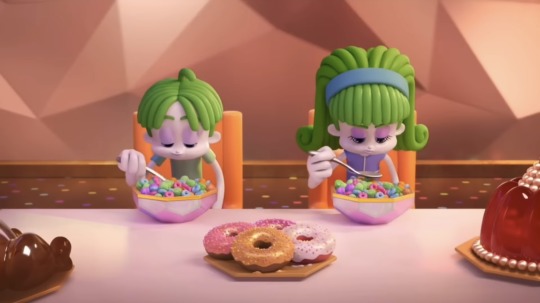
With Velvet and Veneer, they must’ve ended up that way because the Mount Rageon lifestyle is focused on partying and hedonism that they become victims of neglect and favoritism. Velvet was spoiled rotten by their parents, who were dentists while Veneer was often pushed to the side, causing him to lack willpower and only be a doormat for her when she cooks up schemes. Veneer possibly got Sparkles the goldfish as by the parents to shut him up while they spoil Velvet as if she was a treasure they can cherish and maintain. This had gotten worse possibly if the two experience bullying in school for being talentless.
Whatever my mind was thinking, all I know is that there are blurred lines in there.
177 notes
·
View notes
Photo

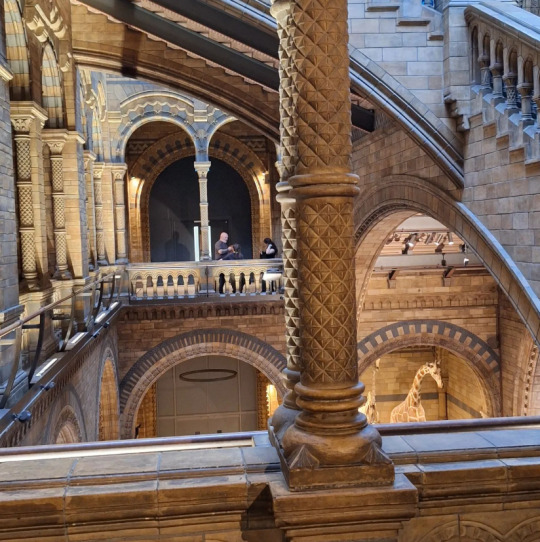
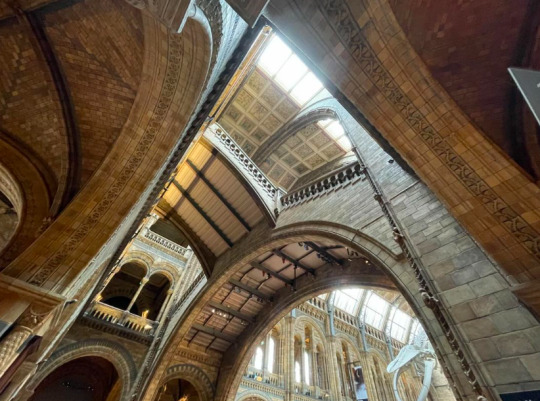
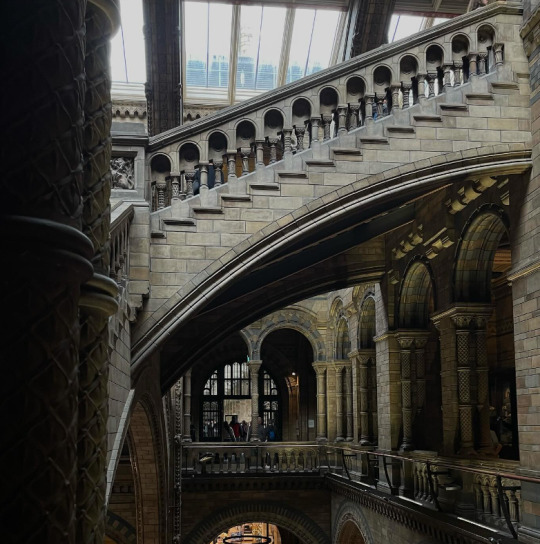
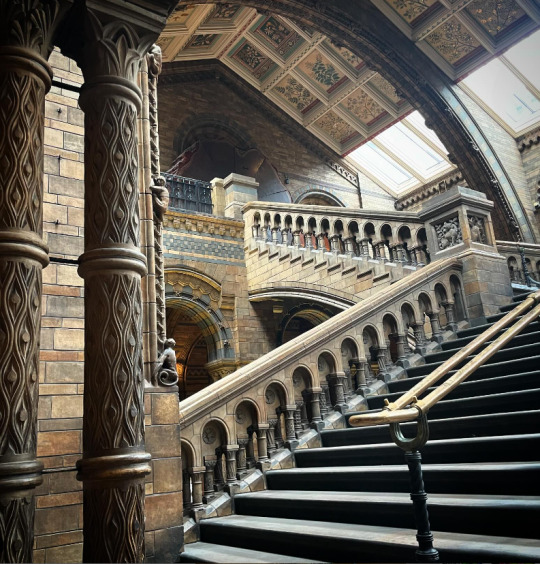


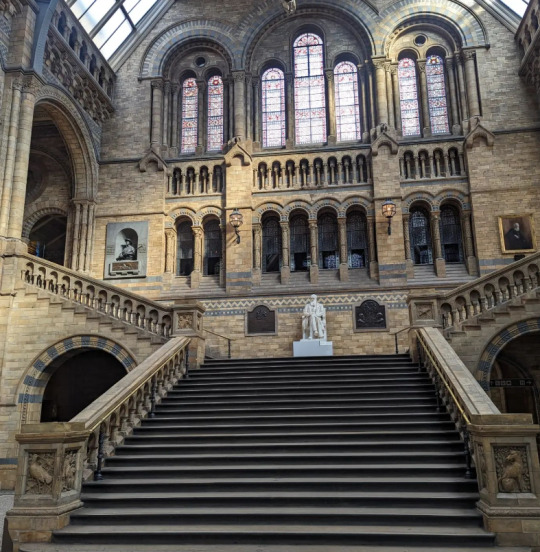
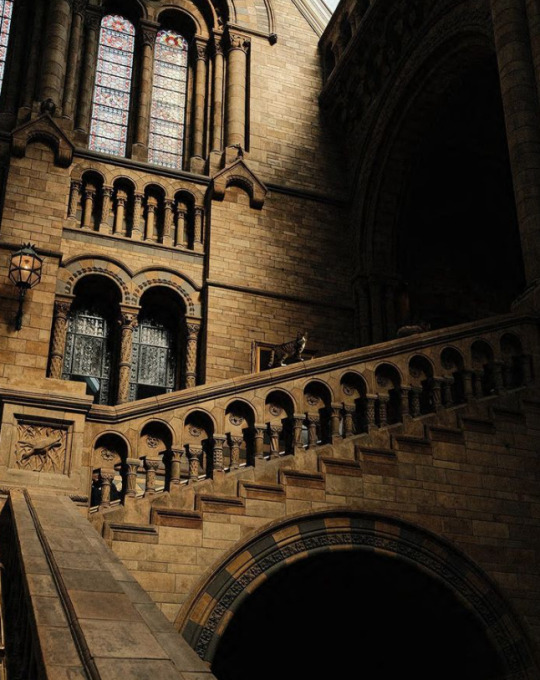
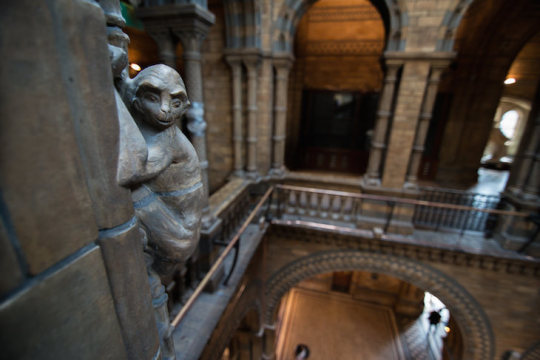

Natural History Museum - London
The Museum first opened its doors on 18 April 1881, but its origins stretch back to 1753 and the career of Sir Hans Sloane, a doctor and collector. Sloane travelled the world as a high society physician. He collected natural history specimens and cultural artefacts along the way. After his death in 1753, Parliament bought his extensive collection of more than 71,000 items, and then built the British Museum so these items could be displayed to the public.
In 1856 Sir Richard Owen - the natural scientist who came up with the name for dinosaurs - left his role as curator of the Hunterian Museum and took charge of the British Museum’s natural history collection. Unhappy with the lack of space for its ever-growing collection of natural history specimens, Owen convinced the British Museum's board of trustees that a separate building was needed to house these national treasures. He drew-up a rough architectural plan in 1859 entitled 'Idea of a Museum of Natural History'. The plan was later referred to by architect Alfred Waterhouse in the design of the Natural History Museum.
In 1864 Francis Fowke, the architect who designed the Royal Albert Hall and parts of the Victoria and Albert Museum, won a competition to design the Natural History Museum. However, when he unexpectedly died a year later, the relatively unknown Alfred Waterhouse - a Quaker architect from the north of England - took over and came up with a new plan for the Museum. Waterhouse used terracotta for the entire building as this material was more resistant to Victorian London's harsh climate. Construction began in 1873, and the result is one of Britain’s most striking examples of Romanesque architecture — considered a work of art in its own right and has become one of London's most iconic landmarks.
Owen's foresight has allowed the Museum to display very large creatures such as whales, elephants and dinosaurs, including the beloved Diplodocus cast that was on display at the Museum for 100 years. He also demanded that the Museum be decorated with ornaments inspired by natural history. And he insisted that the specimens of extinct and living species kept apart at a time when Charles Darwin’s theory of evolution was revealing the links between them. Along with incorporating Owen’s ideas into his plans, Waterhouse also designed an incredible series of animal and plant ornaments, statues and relief carvings throughout the entire building – with extinct species in the east wing and living species in the west. Waterhouse sketched every one of these sculptures in great detail, even asking Museum professors to check the scientific accuracy of his drawings, before creating the fantastic decorations that complement the Museum’s exhibitions. While the building reflects Waterhouse’s characteristic architectural style, it is also a monument to Owen’s vision of what a museum should be. In the mid-nineteenth century, museums were expensive places visited only by the wealthy few, but Owen insisted the Natural History Museum should be free and be accessible to all.
The Museum took nearly eight years to build, and moving the collections from the British Museum in Bloomsbury was a huge job. Relocating the zoological specimens, which included huge whale bones and taxidermy mammals, took 394 trips by horse and cart spread over 97 days. The Natural History Museum finally opened in 1881. The building’s decorative and Romanesque style by Waterhouse is reminiscent of medieval European abbeys, but it is also a monument to Owen’s vision of what a museum should be: the world’s largest and finest institution dedicated to natural history.
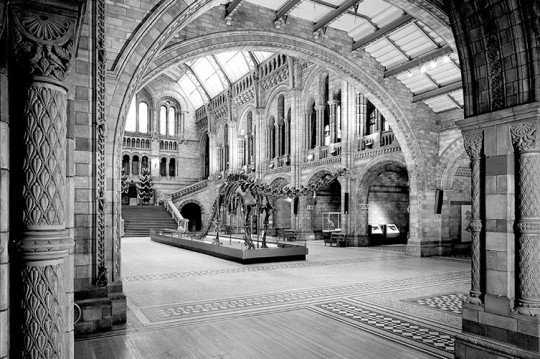
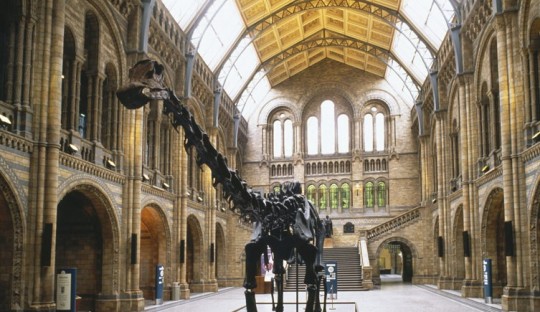
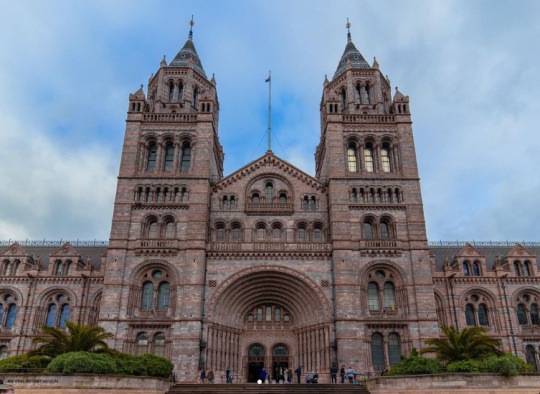

https://www.nhm.ac.uk/about-us/history-and-architecture.html
https://www.nhm.ac.uk/visit/virtual-museum.html
#other's artwork#architecture#Romanesque#Alfred Waterhouse#Sir Richard Owen#terra cotta#Natural History
65 notes
·
View notes
Note
Could you talk about Robespierre and Brissot??? Or maybe more about Brissot, I'm really curious about him!

1789-1792
In his memoirs (written 1793), Brissot writes the following about his activities as a law student in Paris around 1774:
Before leaving the subject of Nolleau’s chambers, […] I must recall the fact that chance gave me there, as second clerk, a man who has since played an amazing part in the Convention, but against whose future celebrity I should at that time have been prepared to bet anything. Ignorant, without knowledge of any scientific subject, incapable of conceiving or expressing an idea of any kind, he was eminently fitted for a career of dishonesty.
Though Brissot doesn’t state it outright, the second clerk and future member of the Convention mentioned here was at first identified as Robespierre. When Claude Perroud published an edition of the memoirs in 1912, he did however dismiss the idea entirely, considering the fact that in 1774, there would be another four years before Robespierre even began to study law in the first place.
If connections between Brissot and Robespierre before the revolution is something we’re in other words lacking, once we’re into it, it doesn’t take long before the former starts to mention the latter’s name. This in relation to describing interventions made by him during the sessions of the National Assembly and the Jacobin Club in his newly founded journal Le Patriote Français. Based off volume 6 of Oeuvres complètes de Maximilien Robespierre, I find Brissot to have mentioned Robespierre’s name a total of 26 times throughout 1789 and 1790, the very first being in number 17 (August 27 1789). As the journal was more concerned with giving a neutral summary of the sessions, as opposed to spreading the author’s own opinions, most of these cannot be used to determine what Brissot’s personal stance on Robespierre was. Sometimes, the overall neutral tone does however give way for a bit more colorful adjectives:
M. Roberspierre [sic] wanted us to adopt this truly noble formula: ”Louis, by the grace of God and by the will of the Nation; King of the French: To all citizens of the French Empire; People, here is the law that your representatives have made for you, and to which I have affixed the Royal seal. He wanted to develop his thoughts, but he was stopped from doing so.
Le Patriote Français, number 66 (October 10 1789)
M. de Robespierre claimed that martial law should not be imposed in the critical circumstances in which the Nation finds itself plunged, and he produced a great impression, with an idea that is imposing and sublime at first glance but which lacks accuracy.
Le Patriote Français, number 76 (October 22 1789)
MM. Roberpierre [sic], Biauzat, and Chapelier easily shattered this diplomatic erudition and proved that it was not a question of the rights of the Province of Cambrésis but of a crazy deliberation of an unconstitutional body.
Le Patriote Français, number 105 (November 21 1789)
M. de Robespierre defended good principles, he showed that the executive power had an interest in increasing the number of wars, while the interest of the legislative power laid in avoiding them. He concluded that it was dangerous to entrust the law of war to the former.
Le Patriote Français, number 184 (May 19 1790)
...There is, however, an article touched by M. Robespierre which has aroused murmurs. This ardent orator made it understood that priests must belong to society through the first of bonds, that of marriage. There is no one who has reflected a little on the cause of ecclesiastical corruption, who has witnessed the good effects of the marriage of priests among Protestant sects, who is not convinced of the necessity of this reform. But although all good minds are convinced of it, although all are convinced of the possibility of combining it with Catholic doctrine, not all also think that this is the moment to propose this idea; they are stopped by the fear of increasing the effervescency among the ignorant: it is perhaps only a false terror... In any case, we must at least prepare the minds, and that is what M. de Robespierre had not done.
Le Patriote Français, number 197 (June 1 1790)
M. Robespierre responded very well to the prepositions, by proving that the legislators of a people that succumb under the weight of taxes and debts, can not lend themselves to sentiments generous enough to leave to the prelates their immoderate powers.
Le Patriote Français, number 320 (June 14 1790)
M. Robespierre courageously defended the true principles against M. d'André.
Le Patriote Français, number 474 (November 25 1790)
In his memoirs, Brissot writes that Robespierre in July 1790 brought him a copy of a letter to Desmoulins to insert in Le Patriote Français — ”I remember on this occasion Robespierre with his fears and his scruples which he could not dissimulate. Desmoulins' thoughtlessness alarmed him; he didn't know what to think of it.” Brissot did however ”think it agreeable” to Desmoulins to insert neither this letter, nor the response the latter wrote in return and which was also given to him. In December the same year, both Robespierre and Brissot signed the wedding contract and attended the wedding ceremony of said Desmoulins, who in a letter to his father reported that everyone present had been driven to tears during it, after which they all went over to have dinner at his place. These are the earliest confirmed meetings between Brissot and Robespierre that I’m aware of, though it’s far from impossible they had had contacts prior to this as well.
Brissot continues to bring up Robespierre in his journal throughout 1791. He mentions his name or debates which he has taken part in around 50 different times, calling him things such as ”a vigorous defender of liberty” (number 525, January), ”a friend of principles” (number 571, February), ”an enlightened patriot” (number 600, March), ”a vigorous patriot” (number 608, April), ”[someone with] rigorous principles” (number 646, May), ”[someone] favored by eternal principles and sound politics” (number 659, May), and ”a good patriot, firm in principles, deaf to considerations [and] the most implacable enemy of the aristocrats” (number 676, June), and openly showing his support for his stance on topics such as the colonies/the rights of men of colour (number 646, May, number 671, June, number 777, September), the self denying decree (number 608, April), the right to bear arms (number 630, April), the dismissal of army officers (number 673, June) and other smaller affairs (number 586, March, number 591, March, number 592, March).
On April 2 1791 Mirabeau passed away, and the following day, Robespierre proposed to the Assembly that the honors of the Pantheon be given to him. In his memoirs, Brissot claims that ”Pétion reproached [Robespierre] for this the same day, he reproached him for it in my presence.”
On June 18 1791, Adrien Duquesnoy attacks both Brissot and Robespierre in number 30 of his journal Ami des Patriotes — ”We are, moreover, on the eve of reaping the fruits of the infernal spirit of system which torments MM. Robespierre, Brissot, etc. They have shouted so much against the distinction of active citizens.” In number 682 of Patriote Français, Brissot responds to his charges and at the same time clarifies that he and Robespierre don’t have any private contacts:
What more will I say about the connections you tie between me and M. Robespierre, and about this infernal spirit that you attribute to us both, about this party over which you make us preside? I have always liked to pay tribute to the inflexible patriotism of M. Robespierre, but I do not share all his opinions; but I don't see him; more than a month has passed since I last had the pleasure of servicing him (de l’entretenir). Party leaders who form a coalition see each other, I believe, a little more frequently.
The number was released on June 21 1791, the same day Paris woke up to the discovery that the royal family had fled the capital during the night. In her memoirs (1793) Madame Roland claimed to in the afternoon have seen both Robespierre and Brissot at Pétion’s house discussing these most recent events:
I was struck by the terror with which [Robespierre] seemed to be overcome on the day of the king's flight to Varennes; I found him in the afternoon at Pétion’s; where he said with concern that the royal family would not have taken this course without having a coalition in Paris which would order a Saint-Barthélemy for the patriots, and that he expected to be dead within twenty-four hours. Pétion and Brissot said, on the contrary, that the flight of the king was his loss, and that it was necessary to take advantage of it; that the dispositions of the people were excellent; that it would be better enlightened on the perfidy of the court by this approach than it would have been by the wisest of writings; that it was obvious to everyone, by this fact alone, that the king did not want the constitution he had sworn to; that it was time to ensure a more homogeneous one, and that it was necessary to prepare minds for the Republic. Robespierre, sneering as usual and biting his nails, asked what a Republic was!
One month later, July 16 1791, both Brissot and Robespierre are found signing the same adress as two of 24 members of the Jacobin Club’s Committee of correspondence. This is the third time Brissot is listed as taking an active part at the club as far as I can see, and the first time he and Robespierre are mentioned during the same session. The day right after, in number 707 (17 July) of Le Patriote Français, Brissot is found agreeing with Robespierre in the big discussion regarding what’s to be done with the king following his capture at Varennes and return to Paris the month before:
…It is very true that to have the king judged by the legislative body would be to violate principles. Also their defenders, Robespierre and Buzot, constantly asked that this great trial be referred to the nation. In that way, we don’t make one power dependent on the other.
The same day this number was released, the massacre on the Champ de Mars took place. Three days later Brissot defends Robespierre against allegations he would be responsible for what had just happened in number 710 of his journal:
Let patriots in all parties stop accusing each other of being the authors of this terrible catastrophe. How did one have the audacity to suspect even the purest virtue? How did one have the audacity to suspect and circulate that MM. Buzot, Pétion, Robespierre were at the head of this uprising? How did one try to raise the national guards and the people against them? Have we therefore already arrived at the unfortunate times of demagoguery, when Socrates and the Phocians [sic] were made to drink the hemlock?
Unlike many other journalists who had to quit their journals in the wake of the massacre due to arrest or going underground, Brissot managed to avoid any repercussions and could stay in Paris and keep his running. In number 774 (September 23 1791), he does however make it clear that, following his election to the Legislative Assembly on September 14 (a place which he surely had the by Robespierre proposed self denying decree much to thank for), he will have to occupy himself much less with Le Patriote Français and leave most of the editing in other hands, but nevertheless continue to give it his ”full attention.” If it would thus appear his role in the editing continued to be considerate, I don’t know how to measure just how much responsibility Brissot is to take for the things that appeared in the journal following this moment…
A week after Brissot’s announcement, the National Assembly was closed down, and yet another week later, October 16, both Robespierre and Brissot are listed as two of twelve jacobins appointed to take part in ”conferances on moral and constitution.” The former did however soon thereafter leave Paris for a visit back to his hometown. He was back in the capital in late November, after which it didn’t take long before a wrench was driven between him and Brissot.
It all started on December 16, when Brissot, after a two month long absence from the Jacobins, showed up and there delivered his first speech in favor of France going to war against German princes (Discours sur la nécessité de déclarer la guerre aux princes allemands qui protègent les émigrés). After the speech was finished, Robespierre, who had shown his opposition towards the idea of war already on December 9, 11 and 12, when brought up by Carra or Réal, suggested the printing of it be adjourned. Two days later, December 18, he responded to Brissot with a speech of his own (Discours de Maximilien Robespierre sur le parti que l'Assemblée Nationale doit prendre relativement à la proposition de guerre, annoncée par le pouvoir exécutif…). After he had finished reading it, Sillery rose to support Robespierre’s position, while Brissot asked to obtain the floor to speak against him during the next session. On December 21 and 25, Carra, Machenaud and Simonne all spoke in favor of going to war, while Desmoulins on December 26 instead took Robespierre’s side with a speech against it. Four days later, Brissot held his second speech in favor of the idea (Second discours de J.-P. Brissot, député, sur la nécessité de faire la guerre aux princes allemands). Journal des Débats de la Société des Amis de la Constitution reported the following in regards to the session:
M. Brissot reads a very long speech, frequently interrupted by applause, on the necessity of an offensive war. He ends with an exhortation to true patriots to submit to the law and never allow themselves to attack the constitution in any way. This exhortation appears to MM. Robespierre and Danton a criticism and an indictment made to the speakers and writers of the Society, because of the kind of affectation which appears to them to be there. They rise to demand the change of this passage in the printing made of this speech. The greatest warmth spread throughout the Society during this discussion, in the midst of which M. Brissot, giving the most striking testimony of the attachment the Societies and M. Robespierre have for the constitution, undertakes to correct the end of his speech in a way so that it won’t leave any doubt regarding his intentions. The sitting is ended at eleven o’clock.
Three days later, January 2 1792, Robespierre held his second long speech on the subject. Unlike his first one, where he had just spoken against going to war in general, here he rather chose to mainly speak against the arguments Brissot had used for it in his speech on the 30th.
…I will try to fulfill this purpose by responding mainly to the opinion of M. Brissot. If general features, if the brilliant and prophetic portrayal of the successes of a war ending with all the peoples of Europe fraternally embracing one another, are sufficient reasons to decide such a serious question, I will say that M. Brissot has perfectly resolved it; but his speech seemed to me to present a vice which is nothing in an academic discourse, and which is of some importance in the greatest of all political discussions; it is because he has constantly avoided the fundamental point of the question, to raise his entire system on an absolutely ruinous basis.
According to Journal général de France, there were however still no hard feelings between Robespierre and Brissot, who ended up embracing each other after the speech:
A great split has just taken place among the Jacobins. M. Robertspierre [sic] has always maintained that we should not wage war: it places in the hands of the executive power means that it could use against the constitution. M. Robertspierre's [sic] obstinacy in maintaining his opinion had made him quarrel with M. Brissot; but they solemnly reconciled, and the club applauded with enthusiasm the embraces they lavished upon each other. Today, M. Robertspierre [sic] is fighting against MM. Brissot, Guadet, Vergniaud, Grangeneuve. The ascendancy of Mr. Robertspierre [sic] still makes success uncertain.
Robespierre had ended his speech promising he would come with further clarifications a few days later, which he also did on January 11. A week after that, January 18, he and Brissot got into a controversy regarding a letter that would have praised Lafayette and expressed doubt over the patriotism of the inhabitants of Metz, printed in number 891 of Le Patriote Français, that had been released the very same day:
Robespierre […] was surprised to have seen a patriotic newspaper, Le Patriote français, expressing doubts about the patriotism of the inhabitants of Metz, and praising La Fayette.
A member asks to make a point of order, and observes that this letter had been inserted the day before in the Moniteur.
Several voices: You’re attacking the patriotism of M. Brissot.
M. Brissot: I declare to the assembly that I was unaware of the letter which was inserted in Le Patriote français by my collaborator. M. Robespierre seemed to cast doubt on the authenticity of this letter. I just saw M. Roederer, who assured me that he had seen the original, and who guarantees it to be genuine. Mr. Robespierre seemed to attack my silence. The painful task that I have imposed on myself prevents me from contributing to the journal assiduously; yesterday I once again spoke for an hour at the National Assembly, and the people can judge whether I am abandoning their cause.
M. Rouyer: Messieurs, I render justice to the patriotism of M. Robespierre and M. Brissot; I am angry that we discuss people when the public good needs us. I am guarantor of both; I ask the Society to move on with the agenda.
M. Robespierre: I declare, in particular, that I am very pleased that M. Brissot was unaware that this letter had been inserted in his journal; I am far from thinking that he wrote it, since the title states that it was inserted in the Moniteur: it is because it is in a newspaper which enjoys a great reputation that I thought it necessary to speak; I have never attacked M. Brissot, our principles are the same; I only refuted his opinion. I come back to my point: I say that the National Assembly must display great character, that it must bring order to the kingdom, that it must never protect the impunity of ministers, that it must exhaust all the good that legislators can do, and then it can declare war.
M. Rouyer climbs to the rostrum and makes some observations in favor of war.
M. Louvet reproaches Robespierre for not seeing the danger where it is, for denying it elsewhere, and thereby incurring a very great responsibility.
The sitting ends at ten o’clock.
In number 893 (January 20) of Patriote Français, Brissot’s collaborator Girey-Dupré responded to Robespierre’s charges, writing that the letter, which had been printed not only in Patriote Français but other ”patriotic journals” as well, had only been an extract from the Moniteur and did not contain any praise of Lafayette. ”As for the suspicions that M. Robespierre tried to spread against this paper,” Girey-Dupré adds, ”I have disregarded the slanders of the aristocrats and the ministers, I can well endure the bad mood of a patriot.”
At the session of the Jacobins held the very same day, Brissot held his third speech in favor of war, where he chose to mainly respond to the arguments laid out by Robespierre most recently, just like the latter had done with him on January 2:
I’m now arriving at the arguments Robespierre made against me at this tribune that I still haven’t answered. […] It is very strange to today see M. Robespierre walking on the same line as the ministry, nevertheless maintaining that he is on the opposite side, and claiming that those who support him are actually against him. […] Certainly, we will not accuse, despite these connections, M. Robespierre of being in concert with the minister; but he should at least believe that this concert does not exist between this minister and those who openly fight him, who vigorously denounce the vices and abuses of his administration. This idea brings me back to some insinuations on the purity of my intentions, which distort M. Robespierre's speeches. They are foreign to him, I like to believe; for I have seen him, I have known his soul, and wickedness never came near him. If there are disguised poisons in his speeches, I will only attribute them to the suggestions of men against whom he is not sufficiently armed with distrust.
When the speech was over, Brissot and Robespierre were made to embrace each other yet again:
M. Brissot justifies himself in response to the insinuations thrown at him by Robespierre in a previous session, and implores him to put an end to a dispute which can only be agreeable to the enemies of the public good.
M. Dusaulx: All the patriots of this club have long been suspended in the course of a discussion which seemed to compromise two good patriots who must love and esteem each other; something would be missing after what M. Brissot said before leaving this assembly, it is the duty of these two generous men to embrace each other.
No sooner had he finished than MM. Robespierre and Brissot were in each other's arms, amid the unanimous applause of the Society, moved by this touching spectacle.
M. Robespierre: By yielding to M. Dusaulx's invitation, I only gave myself up to the impulse of my heart, I gave what I owed to the confession and to the fraternity and to the feeling depth that I have of a man who enjoys the greatest consideration and who must render the greatest services to the fatherland; I will prove to M. Brissot how much I am attached to him. This should in no way change the opinion that every man should have of the public good; it is to do all that will be in me, and what I believe necessary for the public safety, that I will ask to answer in another session to the speech of M. Brissot. (speech 3?)
M. Rœderer: I ask for the floor to point out an oversight which, no doubt, escaped M. Robespierre, and that is to request the printing of M. Brissot's speech. I ask for it in his name.
Robespierre did however think this gesture had been a stupid one, as revealed through a letter he wrote to Antoine-Joseph Gorsas, author of the journal Courrier des 83 départements, eight days later. He also safeguarded his own position on the war (that he by then had already held a third speech against on January 25), which he meant Gorsas had gotten wrong when describing the session on the 20th in the latest number of his journal:
I noticed in your number from today an error which deserves to be corrected. When summarizing the latest session at the Friends of the Constitution, the article of which I’m speaking supposes that I have renounced my principles on the important questioned which today agitates all the spirits, since one feels it holds onto public safety and the maintenance of liberty. I would consider myself little deserving of the esteem of good citizens had I played the role this article ascribes to me. What is true in this recital, is that, after a speech held by M. Brissot, on the pathetic invitation of M. Duseaux, the two of us cordially embraced, applauded by the entire club. It is also true that I went through with this action with much pleasure, that the important discussion where we had embraced holding different opinions, had not left any bitterness in my soul; that I am far from viewing as particular quarrels debates that interest the fate of the people, and where I have never held any passion other than that for the public good. Also, far from thinking that neither the fate of the big question which occupies all of France, nor my particular opinion could in any way be subordinated to my sensibility and my personal affection for M. Brissot, I immediately mounted the tribune in order to manifest this sentiment in the following way: ”I just fulfilled a duty consisting of fraternity and of satisfying my heart; I still have an even more sacred debt to pay to my homeland. The profound sentiment which ties me to it, neccessarily supposes love for my fellow citizens and for those with which I have the closest of bonds: but all individual affections must give way to the sacred interest of liberty and of humanity: I could easily reconcile it here with the attachment, with the respect that I have promised to all those who have served the homeland well, and who will continue to serve it well. I embraced M. Brissot with this sentiment, and I will continue to combat his opinion on the points where it differs from my principles, by indicating where I agree with him. May our union rest on the sacred base of patriotism and virtue, let us fight like free men, even with energy if it’s needed, but with respect, with friendship.”
Robespierre.
Robespierre didn’t hold more speeches purely about being against war following January 25, but continued to show his opposition at the Jacobins regardless throughout the following months. On February 10, he held a speech with the title On the Means to save the State and Liberty, ”that is to say, (he underlined) to stifle civil war and foreign war, by confusing all the projects of our internal enemies.” On February 24 he spoke out against the club’s committee of correspondence for having stated that the club was in favor of the war, and that those who had supported the opposite party had changed their mind — ”As for me, it remains for me to prove that I have not renounced my opinion in favor of a party that I consider to be the most dangerous for the homeland and for liberty.” Two days later, he demanded that a circular meant to be sent to the sister clubs in the provinces regarding the question include a table containing the reasons put forward by different speakers for or against war, as opposed to stating the majority of the society was for it. Brissot on the other hand retreated back to the Legislative Assembly to continue pushing his agenda there instead, supported by people such as Louvet, Gensonné, Vergniaud, Isnard, Guadet, Manuel, Roederer, Bangal, and Cloots. Number 963 (March 30 1792) of Le Patriote Français contained an article titled ”On the new tactic of the enemies of liberty” and, while not naming Robespierre by name, suggested that those that were against war had ulterior motives for doing so — “any opinion against the war can only be very disastrous, and we understand that it must be used by this Austrian committee, which wants to give its friends time to prepare to attack us.” The article is not signed by Brissot and as mentioned above, he had by this point in large part handed over the editing to others. Regardless, it can probably be concluded that such an article appearing in what was technically still his journal did no miracles for his and Robespierre’s relationship.
In February, Desmoulins released the 60 page long and influential pamphlet Jean [sic] Pierre Brissot démasqué, which acted both as a denounciation of Brissot, treated, if not yet as a full blown traitor and counterrevolutionary, at the very least as a fool and an object of ridicule, but also as a defence of ”my college friend” Robespierre. In Choosing Terror (2014), Marisa Linton writes that Robespierre ”may well have been involved in [the pamphlet’s] production,” probably basing this on the fact that we know he had had a hand in other of Desmoulins’ works. If we’re lacking any tangible evidence for this in the case of Jean-Pierre Brissot démasque, Desmoulins did himself nevertheless claim that ”[Robespierre] sees me as invulnurable after the proof of incorruptibility that I produced in my latest writing to Brissot” in a letter inserted in Journal de M. Suleau not long thereafter.
On April 20 1792, Brissot and his allies finally had their way as France declared war on Austria. The very same day Robespierre spoke at the Jacobin club, saying that, now that the dice had been rolled, he too was in favor of ”conquering Brabant, the Netherlands, Liège, Flanders, etc” while also stating that ”now is above all the time where we must supervise the executive and the constituted authorities.” Three days later, April 23, he asked the Jacobins to for the opportunity to share his thoughts on “a civil war plan presented to the National Assembly by one of its members” during an upcoming session. But before that could happen, on April 25, Brissot showed up at the Jacobins for the first time since January 20, when Dusaulx had made him and Robespierre embrace, and delivered a long speech where he defended himself against accusations that he would have nominated ministers, been allied with Lafayette and Condorcet and dined together with Narbonne and Madame de Staël, and, while not naming Robespierre by name, warned of ”agitators” seeking to divide the society in the time of war:
Their (aristocrats and agitators) conduct is the same; like the friends of the court, the agitators denounce and seek to divide the patriots; like the friends of the court, they cry out against war, when war is wanted by the majority of the patriots. [applauds]. Certainly, I will not imitate my adversaries' ease of slander, I will not rely on rumors that they are paid by the civil list; I will not denounce based on rumors that they have a secret committee to influence this Society; but I will say that they follow the same path as the supporters of civil war. I will say that, without a doubt, they do more harm to patriots. At what point do they come to divide this Society? At the moment when external war and internal war threatens us. Ah! Gentlemen, why, for several months, have one been trying to hijack the agenda here? The most important questions demand your attention. When all the Societies of the kingdom expect you to solicit a host of decrees favorable to the people, the sanction of which is easy in the present state of the ministry, you let slip an opportunity which perhaps will never arise again; It is time to occupy yourself with the discussion of the objects which interest the National Assembly, and which we want to make you lose sight of. I ask the Society to give explanations on this, and I conclude that, denouncing the denunciations that I have refuted, we move on to the agenda.
Right after this, Robespierre tried to take the floor for a point of order, but this request was refused and instead obtained by Guadet, who started denouncing Robespierre, calling him an ”imperial speaker” who would only talk about himself — ”M. Robespierre had promised to denounce a civil war plan formed within the National Assembly itself, I summon him to do so. I denounce a man who constantly puts his pride before public affairs, the position to which he was called. I denounce a man who, whether ambition or misfortune, has become the idol of the people.” Robespierre then took to the floor, declaring that ”my most ardent adversaries are not MM. Brissot and Guadet” but nevertheless requesting time to properly respond to them, something which he was given. Two days later, April 27 1792, he could deliver a speech by the name of Réponse de M. Robespierre, aux discours de MM. Brissot & Guadet du 25 avril 1792. Robespierre criticized both of the in the title named men, before nevertheless asking for peace — ”I only want to give you proof of moderation. I offer you peace on the only conditions that the friends of the homeland can accept. On these conditions I gladly forgive you for all your slanders.”
But just three days later, April 30, Robespierre complained to the Jacobins that the printed versions of the speeches Brissot and Guadet had held on the 25th matched badly with what they had actually said. His objection did however not gain any support from the president Lasource. A little more than a week later, in number 1003 (May 9 1792) of Patriote Français, we find an article titled ”On the war of M. Robespierre,” signed by Brissot and with the following content:
M. Robespierre continues to wage war against me, to denounce me, and to have me denounced to the Jacobins. I won't bother to answer him; this war is a scandal, and can become a source of calamity for liberty. Despite all the advantage that my adversaries give me over them, I consider it a real crime to continue it. The pain of true patriots, the joy of feuillans, and the interest of liberty, command my silence. Moreover, this war will fall by itself, I like to hope, because it is only about absurdities, and the people do not pay for absurdities for long. The trial between M. Robespierre and me will be judged by our common conduct. He deserted his post (as public prosecutor), without being able to give a single good reason; I am and will be faithful to mine. It is by faithfully fulfilling my duties, and not by eternally denouncing that I will respond to him. I expect him at the end of the legislature; I will produce my actions, we will examine his, and the public will be the judge of our patriotism. Agendo non dicendo was Cato's motto, and it is also mine.
A week after that, May 17, the first number of Robespierre’s new journal Le Defenseur de la Constutition was released. Just six pages in he takes a dig at Brissot and Condorcet, questioning their conduct in the aftermath of the Flight to Varennes and Massacre on Champ de Mars the year before. He remarks how these two men ”up until then known for your connections to La Fayette, and for your great moderation; long-time spectators of a semi-aristocratic club (the Society of 1789)” suddenly started waving the word ”republic” around, Condorcet by publishing the treatise De la République, ou Un roi est-il nécessaire à la conservation de la liberté ?, Brissot by founding a journal by the name of Le Républicain, while their friend Duchatêlet put up posters preaching the same ideals on all the walls of Paris. Robespierre considers the timing for this to have been counterproductive at best:
With all the spirits fermented; just as much as the word republic caused division among the patriots, gave the enemies of liberty the pretext they were looking for, to publish that there existed in France a party which conspired against the monarchy and the constitution. They hastened to attribute to this argument the firmness with which we defended in the Constituent Assembly the rights of national sovereignty against the monster of inviolability. It was with this word [republic] that they misled the majority of the Constituent Assembly; it is this word which was the signal for the carnage of peaceful citizens, slaughtered on the altar of the homeland, their whole crime having been to legally exercise the right of petition, enshrined by constitutional laws. Through this name the true friends of liberty were disguised as factious by perverse or ignorant citizens; and the revolution regressed by perhaps half a century.
He also brings up the fact that it was Brissot who had been the author behind the petition that asked for the the removal of the king ”at a time when the faction was only waiting for this pretext to slander the defenders of liberty” which was then presented on the Champ-de-Mars. While Robespierre is quick to underline he doesn’t think the intentions of Brissot or Condorcet were ”as guilty as the events were disastrous,” dismissing the thoughts of other ”patriots” who have suggested the two were secret allies of Lafayette, he also writes that ”I only want to see in their past conduct anything but impolitic sovereignity and profound ineptitude” and warns them that ”anyone who bases ambitious projects on new errors of the monarch, who dares to start civil war, at a time when foreign war is being provoked, would be the greatest enemy of the homeland.” The number also contained a copy of Robespierre’s Réponse to Brissot and Guadet from the month before.
In number 3 of Le Defenseur de la Constitution, which can be dated May 31, Robespierre also published an article by the name of Considerations regarding one of the main causes of our ills, where he attacked Brissot once again, designating him and Condorcet as the most famous leaders of a faction that also included ”other deputies of Bordeaux, such as MM. Guadet, Vergniaux, Gensonné...”(he justified going against his former stance to not focus on individuals by rhetorically asking ”how to reveal the factions, without naming Claudius, or Piso, or Caesar? How to fight the Triumpirs [sic], without attacking Octave, or Antoine or Lepidus?”). For 22 pages, Robespierre examined Brissot’s ”faction,” listing several charges and taking from it three truths:
The first [truth] is that, as members of the legislature, they have violated the rights of the nation, and labored mightily to imperil liberty; the second, that they have employed pernicious maneuvers to deprave the public spirit, and make it deviate towards the principles of despotism and aristocracy; the third, that they have done everything in their way to corrupt patriotic societies, and to make of these necessary channels of public education, instruments of intrigue and faction. […] Justice, common sense, civil and political liberty, you have sacrificed everything to the interest of your ambition and to cowardly vengeance; you had to complain about one of the denounced writings; and you were not ashamed to be accusers, judges and parties at the same time. With your heart full of cruel and vile passions, you invoked the public good and the sacred name of the laws.
Robespierre ends by declaring:
…it seems to me that it has now been proven that your patriotism was neither sustained nor true; that the scattered features, by which it seemed to announce itself, can well fool the eyes of unreflecting men, but not redeem the great faults that you have committed against the nation: that in general they do not relate to the public good and to the cause of the people; but to a system of intrigues, and to the interest of a party. I don't need to know whether it's the court or some other faction you serve; it is enough to see that it is not liberty. It is even clear that your conduct can only promote the triumph of the court; and that it is up to it to take advantage of it. If you are strangers to it, you are not so to any other party. However, any party is harmful to public affairs, and it is in the interest of the nation to stifle it, as it is the duty of each citizen to reveal it.
In the aftermath of the publication of both these numbers, sections with the title Why? (Pourquoi ?) appeared in Le Patriote François, the first in in number 1014 (May 20), the second in number 1032 (June 6). Each paragraph of these sections began with the mantra ”Why do M. Robespierre and his partisans [do this/that]. We don’t know, but [something that implies Robespierre has ulterior motives for doing it].” None of these articles are however signed, so there’s no way to know if Brissot was the author (I have my doubts that would be the case for at least the second article, since Brissot in that case would be referring to himself in third person). Throughout June 1792 we also find other numbers of Patriote Français where Robespierre gets mentioned in hostile terms (number 1035 (June 10), number 1036 (June 11), number 1042 (June 17)).
But on June 28 1792, Brissot and Robespierre were shortly reunited after the former had held a speech at the Jacobins denouncing Lafayette, who on the 16th had written an open letter to the Legislative Assembly where he had suggested shutting down all political clubs in order to retain order.
M. Robespierre: When the danger to liberty is certain, when the enemy of liberty is well known, it is superfluous to speak of a reunion, because this feeling is in all hearts. As for me, I felt that it was in mine from the pleasure that the speech given this morning to the National Assembly by M. Guadet gave me, and from that which I have just experienced by hearing M. Brissot. (Applause.)
The journal La Rocambole des journaux, even claims Robespierre wanted to embrace Brissot once again:
I agree to this with all my heart, replies Robespierrot [sic], and to prove it to you: come here Brissot, let me embrace you; let us think only of crushing Lafayette, and of having him indicted; but first, each citizen must denigrate, tear apart, defame this conspirator with all his power so that before being judged by the national high tribunal, he is condemned in public opinion.
Of course, the reunion didn’t last for long, already a month later, July 29, Robespierre did for the first time openly show his support for overthrowing the king and the Legislative Assembly and replacing them with a convention tasked with carrying out major changes. He also argued that the selfdenying decree he had put forward a year earlier be used again, barring the members of the Legislative Assembly (obviously including Brissot) from sitting in the Convention. The next day, July 30, Le Courrier du Midi reported the following:
The club of 300 legislators was held today, in the former Jacobin barracks, near the club of friends of the constitution. Mr. Isnard has just caused a major split there, by declaring that he was going to denounce MM. Antoine and Roberspierre [sic], former constituent deputies. The latter had declared on the 30th [sic] that the current legislature was incapable of saving national sovereignty, and in the hands of intriguing legislators. Roberspierre [sic] spoke with rare energy; and the club ordered the printing of his speech, fortunately improvised. Mr. Isnard is therefore awaiting this civic harangue, to make his denunciation, tending to send the two constituents to the high court of Orléans: his motion was supported by the tartuffe Brissot, who showed the same commitment. Patriotic deputies left the insidious session and tore up their cards; they came to reveal this cowardly plot to the Jacobins; and the publicity of this uncivil act will undoubtedly cause Isnard and Brissot's project to fail.
During his trial a year later, Brissot claimed to not remember this incident. Regardless, the day right after it, August 1 1792, it was spoken of at length at the Jacobins, with energic attacks being made against Brissot. Robespierre was present at the session but chose not to mention Brissot or Isnard, confining himself to repeating his wish of convening a national convention meant to last for a year. ”This effective way to keep all intriguers away from this constituent assembly seems to this speaker sufficient to save the homeland from the dangers that it owes only to weakness and intrigue.”
The very same day, news of the Brunswick Manifesto begun to sweep through Paris, and before the Brissot and Isnard controversy could get any too drastic follow-ups, it was overshadowed by the Insurrection of August 10 which brought and end to the Legislative Assembly. Two days after the insurrection, August 12, Robespierre began to serve on the Paris Commune. On September 2, during the end of which the so called September massacres began, he is recorded to have done the following during the evening session of said commune:
MM. Billaud-Varenne and Robespierre, developing their civic feelings, paint the deep pain they feel over the current state of France. They denounce to the General Council a plot in favor of the Duke of Brunswick, whom a powerful party wants to bring to the throne of the French.
The next day, Brissot could report the following:
Yesterday, Sunday, I, as well as parts of the deputies of the Gironde, and other equally virtuous men, was denounced at the Paris Commune. We were accused of wishing to hand over France to the Duke of Brunswick, of having received millions from them, and of having concerted ourselves to go to England to save ourselves. Citizens, I was denounced at ten o'clock in the evening, and at the same time they were slaughtering in the prisons… This morning, around seven o'clock, three commissioners of the Commune came to my house… for three hours, they examined, with all possible care, all my papers.
If this had been a naked attempt to get Brissot murdered in prison is hard to know for sure. Historians willing to give Robespierre the benefit of the doubt have suggested he may not have learned of the massacres yet when denouncing Brissot. Though I wouldn’t say his case is much helped by the fact that, when explaining his actions during and attitude towards the massacres in a speech held November 5 1792, he denied he had even been present at the Commune the days before and during them (which is obviously false) as opposed to admitting he had been there and said what he’d said, while asseverating he had not had any evil intentions…
In his Discours de Jérôme Pétion sur l’accusation intentée contre Maximilien Robespierre (November 5 1792) Pétion recounts the following conversation between him and Robespierre which took place just one day after Brissot’s house was searched, and where Robespierre confirms his suspicions regarding Brissot having connections to Brunswick. Like Brissot one year earlier, Pétion too underlines that no personal relationship existed between the latter and Robespierre:
The surveillance Committee launched an arrest warrant against Minister Roland; it was the 4th (September), and the massacres were still going on. Danton was informed of it, he came to the town hall, he was with Robespierre. […] I had an explanation with Robespierre, it was very lively. I still made him face the reproaches that friendship tempered in his absence, I told him: ”Robespierre, you are doing a lot of harm; your denunciations, your alarms, your hatreds, your suspicions, they agitate the people; explain yourself; do you have any facts? do you have proof? I fight with you; I only love the truth; I only want liberty.
”You allow yourself to be surrounded,” [he replied], ”you allow yourself to be warned. You are disposed against me, you see my enemies every day; you see Brissot and his party.”
”You are mistaken, Robespierre; no one is more on guard than I against prejudices, and judges with more coolness, men and things. You’re right, I see Brissot, however rarely, but you don’t know him, and I know him since his childhood. I have seen him in those moments when the whole soul shows itself; where one abandons oneself without reservation to friendship, to trust: I know his disinterestedness; I know these principles, I assure you that they are pure; those who make him a party leader do not have the slightest idea of his character; he has lights and knowledge; but he has neither the reserve, nor the dissimulation, nor these catchy forms, nor this spirit of consistency which constitutes a party leader, and what will surprise you is that, far from leading others, he is very easy to abuse.”
Robespierre insisted, but confined himself to generalities.
”Allow us to explain ourselves, I told him, tell me frankly what’s on your mind, what it is you know.”
”Well!” he replied, ”I believe that Brissot is with Brunswick.”
”What mistake is yours!” I exclaimed. ”It is truly madness; this is how your imagination leads you astray: wouldn't Brunswick be the first to cut his head off? Brissot is not mad enough to doubt it: which of us can seriously capitulate! which of us does not risk his life! Let us banish unjust mistrust.”
Danton became entangled in the colloquy, saying that this was not the time for arguments; that it was necessary to have all these explanations after the expulsion of the enemies; that this decisive object alone should occupy all good citizens.
In Histoire générale et impartiale des erreurs, des fautes et des crimes commis pendant la Révolution française (1797) Louis Marie Prudhomme also claimed that, on September 3, Théophile Mandar proposed creating a dictatorship in order to stop the massacres to Pétion and Robespierre. Robespierre then cried out:
”Be aware! Brissot would become dictator!”
”O Robespierre,” Mandar said to him, ”it is not the dictatorship that you fear, it is not the homeland that you love: it is Brissot that you hate.”
”I hate dictatorship and I hate Brissot!”
A little more than two weeks later, September 21, the first session of the National Convention was held. Robespierre and Brissot had both been elected deputies, the former representing Paris, the latter Eure-et-Loi. In the pamphlet J. P. Brissot, député à la Convention nationale, à tous les républicains de France; sur la société des Jacobins de Paris, released less than a month later, Brissot writes that before the opening of said Convention, Danton, in the hopes of sorting out their differences, organized a meeting between the three. But as might be expected, it didn’t bear any fruit…
Before the opening of the National Convention, Danton, trying to bring together what he called the parties, sought me out, and I did not refuse explanations, because I have always had a horror of divisions. I attested to the consideration that I for a long time had held for Robespierre and his faction, although constantly harassed by them. Danton asked me some questions about my republican doctrine; he feared, he said with Robespierre, that I wanted to establish a federative republic, that this was the opinion of Gironde. I reassured him. Robespierre was informed of this, and Robespierre continued to spread the word that I wanted a federal republic.
Just two days after the opening of the Convention, September 23 Chabot came to the Jacobins and announced that in number 1140 of Patriote Français, released the very same day, ”Brissot or his croupier said […] that the Convention appeared to be divided into two distinct parties; one of which is a disorganizing party. This seems to me to be one of the intrigues that people play to keep the deputies sent from the departments to the Convention away from the Jacobins: they will be told that it is in this Society that this disorganizing party resides. […] I therefore denounce this intrigue that seems to me to have been made in order to depopularize Danton, Robespierre and Collot, and I say that, if Brissot does not explain this article in his journal, he is the biggest of scoundrels.” When Brissot hadn’t yet appeared to give an explanation on October 10, the jacobins struck him from their list of members, and other ”girondins” followed suit the very same month.
On September 25, a stormy session played out between girondins and montagnards within the newly opened Convention (as would be the case for almost every session the following time as well), that among other things included Osselin claiming that ”a party of Robespierre” existed within the Convention, Robespierre denying this to be true, saying that ”it was when I loudly demanded the dismissal of Lafayette before the war, that it was said, in these public journals, that I had had conferences with the queen, with Lamballe, and that my resignation as public prosecutor was the result of this infamous transaction; and it was at the same time that a patriotic but inconsiderate writer (Brissot) accused me of aspiring to dictatorship: and it was at the moment when the National Convention was about to begin its work that these miserable imputations were reproduced,” Brissot asking what right there is for issuing arrest warrants against deputies, and Verguiaux developing on this by accusing Robespierre of having implicated him, Brissot, Ducos, Guadet, Condorcet and Lasource in the complot favorable to the duke of Brunswick denounced at the commune on September 2.
On October 29 1792 Brissot released the pamphlet J. P. Brissot, député à la Convention nationale, à tous les républicains de France ; sur la société des Jacobins de Paris where he, after having accused Robespierre of secretly working with the Austrian committee during the Legislative Assembly and hiding out during the Insurrection of August 10, once again came back to what the latter had been up to during September 2:
Robespierre accused me, at the rostrum of the Paris Commune, of having sold France to Brunswick. He had, he said, proof, striking documents. He promised to show them. Readers, do you want to know this striking evidence? Here it is: I got it from Pétion and Danton, to whom Robespierre did not blush to entrust it. Brunswick, he said, would not have entered France if he had not had a deal with the Gironde faction and me to deliver Paris to him. And where was this deal? In Robespierre's head. Without doubt I could refute, with a thousand arguments, this profoundly stupid accusation, were it not profoundly atrocious. I could retort, with advantage, against Robespierre, this pleasant logic, and prove to him, perhaps, with more plausibility that he himself and his accomplices were in concert with the Prussians; but disdaining such an easy victory, I move on to other considerations. And, I ask my readers, what idea should one form of a man who, on a hypothesis, on a reverie, publicly dishonors representatives of the nation, already surrounded by slander and daggers; who delivers them to the people. What will I say to the brigards who took on the name of the people; to the brigards ready to strike, at the sole signal of the first slanderer who presented himself. And it was on September 2 that Robespierre resounded with this slander! It was the day when the surveillance committee, dripping with blood, issued arrest warrants, or rather massacre warrants, against the deputies of Gironde and against me! It was the day when the scoundrels, who triumphed in Paris, piled up their victims at the Abbaye prison, because they had made the Abbaye a butchery, a tomb for their victims...! Yes, Robespierre was obviously either a monster, or the imbecile instrument of monsters. He was accused of aspiring to dictatorship, to the tribunate. His conduct would seem to prove it, if the mediocrity of his means, if the terror of death, which constantly surrounds him, did not keep him from this perilous post: a dictator must include among his risks that of a violent death; and to brave death, you need some courage. Whatever his secret intentions, when I remember all the circumstances which preceded, accompanied or followed the awful day of September 2 [he then spends two pages listing these circumstances] I cannot help but believe that this tragedy was divided into two very different acts; that the massacre of the prisoners was only an accessory to the grand plan; that it covered and was to bring about the execution of a conspiracy formed against the National Assembly, the ministry and the most intrepid defenders of liberty; that its authors lacked only the courage to execute it, and to mount the tribunate on the corpses of Rolland, Guadet, Vergniaux, Gensonné, etc. and on mine... […] ”I know it,” said Robespierre naively one day to a deputy from Gironde who accused him of having ordered the assassinations. ”I know, that neither you nor your friends would have had an aristocrat assassinated.” This trait paints the spirit of the band.
The next part in the reblog.
40 notes
·
View notes
Note
You know I'm curious how you would write the companions reacting to a glitch that happened to me once in a playthrough. I was fighting a legendary ghoul and using brass knuckles when I ended up punching it in the head so hard that the head came clean off but at the same time it mutated and restored all its health. Which meant i ended up having a headless and armless (I had taken off the arms earlier in the fight) ghoul fighting me. I remember all I could think was "did I just hit this thing so hard that it can't even tell that it is supposed to be dead?"
My gosh, this is insane 😂 The glitches on this game get crazier and crazier. Also, btw, new fear unlocked because ever since you sent this in, I've been watching those legendary ferals with a bombastic side-eye 😅😅😅
Thank you so much for the request!!! 🥰
Cait - Would start frantically blowing holes into it as she blindly shoots. She would not even really worry about accuracy, just hoping that she's stopping it because this thing is seriously freaking her out at this point.
Piper - Would instantly start running as soon as she ensured that her Blue was getting out with her. Ferals and Mirelurks are her two weaknesses and a headless, armless turd in the wind ghoul is not something she's sticking around for.
Curie - Would probably scream. But as soon as it dies, she'd be examining it carefully, trying to decipher how exactly that this happened and devising some sort of scientific explanation.
MacCready - Would screech like a little girl and shoot with you until it was dead. Once it's all over, he would definitely deny it being a screech. More like a manly expression of slight uneasiness.
Deacon - Would be ready to just pop a stealth boy and bug out. He might sit this one out because this is weird even for him, so good luck.
Codsworth - Would be rather shocked, but he would stick with her regardless of the frightening sight, going after it. He is not losing the last remaining bit of his family.
Hancock - Would start laughing like a maniac. For some reason, this is hilarious to him, and while he's not sure if he's hallucinating it or not, it's still hilarious because it is such a bizarre sight.
Danse - Would quickly put on his power armor helmet to shield himself more fully as he does his best to keep from looking as scared as he feels at the sight of it. He would be embarrassed at the fact that he is afraid of a headless, armless ghoul when he has taken on things like Deathclaws before.
Preston - Would do his best to remain calm despite the terrifying sight, and he would try to maintain some distance from it. He would say it was to get better shots on the creature, but the truth is that he just would not want to be close to the thing.
Valentine - Would be surprised but would not react too badly. He would handle it rationally and go on shooting at it like he would normally, just not quite in the same spots as he would try to aim for normally.
X6-88 - Would be thankful for the fact that it could not really attack in its customary manner of bites and angry swings of its arms. He would take advantage of its removed defense system and he would make short work of the entire thing, aiming for the legs.
Dogmeat - Would not be bothered by the lack of a head and arms, and he would attack it just the same, going for the legs since those are definitely still intact.
Strong - Would be confused but would not dwell on it for too long. He would probably just go after its neck stump and smack the feral with his super sledge like it was a piñata.
#cait#piper wright#curie#fallout 4#fo4#fallout#fallout companion reacts#fallout 4 companion reacts#fallout companions react#fallout 4 companions react#danse#paladin danse#strong#dogmeat#x6-88#valentine#nick valentine#hancock#john hancock#mayor hancock#preston garvey#maccready#robert joseph maccready#codsworth#deacon#female sole survivor#sole survivor#f!sole
151 notes
·
View notes
Note
https://vm.tiktok.com/ZGejUxD5k/
The comment of making a song in Ancient greek just to piss of Greeks what's the purpose of it? As a Greek i wouldn't mind someone foreigner trying to learn Greek, so just making this comment a video provokes a negative behaviour.
My problem with this is that I am so annoyed at the person who made the request like this ("make the Greek mad") but it gets worse because there are Greeks getting mad at the comments in a wrong way so that person is proven right :////// That person makes a reference to the long standing animosity between modern Greek speakers and western classicists obsessed with the Erasmian pronunciation. Or the reconstructed one. The TikToker has had beef with Modern Greek speakers in an older video. That's what was referenced there.
Anyway, the tiktoker himself is not wrong in his recitement when it comes to the technical aspects of it. The problem with it is that - who knows how - even though he employs the prosody in the recitation, he still sounds incredibly monotonous. And incredibly English lol. If I had to listen to all that by a rhapsodos as an Ancient Greek I'd rather kill myself. Imagine 15,693 lines of verse like that. Listen to it and tell me I am wrong.
And not to be that person, but the TikToker kinda looks like he's torn between being the most English person ever and the descendant of Brad Pitt's Achilles.
I am so mad at Greeks because the radical western classicists (new term I just invented!) lack so much self-awareness that it would be easy for Greeks to argue, and yet Greeks are divided between "GREEK PRONUNCIATION SAME ALL THE WAY BACK TO 1000000000 BC" and "a blondie said it therefore it is the unquestionable truth and I dare not develop an insight on it by myself". There's no in between. I hate us.
And I say they lack self-awareness because even though they obsess so much over the textbook, (which is western theories mixed with western interpretations of scarce ancient Greek sources, without questioning even for a second the accuracy of said interpretations and even the ability of the ancient texts to convey in script the sound and the oral delivery of the language accurately and easily enough for foreign people to understand it perfectly many centuries later and with no exposure whatsoever to said language), they fail so much at removing the inherent elements of their own language.
Like, when Ancient Greek was said to be a very beautiful and unique sounding language, and you end up sounding like the blandest English gibberish poem ever, something must not be quite right. This is not evident just in Greek. He speaks a lot of languages (and kudos to him) but he said Mahabharata and it was like "Muh- hub- arr - atttah... and a cup of tea, please". Come on. I was petty enough to pronounce Mahabharata loudly and then went to GoogleTranslate and listened to the pronunciation in Hindi (no pronunciation option available for Sanskrit). I am closer to it than he is. (3,2,1 until some wild Brit classicist claims the English version is closer to Sanskrit than Hindi is XD). But okay it was petty and not all that scientific on my part, I admit.
Whoever wants a GOOD recitation of Ancient Greek, try Ioannis Stratakis - Podium Arts on YouTube. He sticks to the "textbook" and so far he is the best I have heard.
P.S. I saw somewhere in the comments under his posts the explanation / excuse that some words have to be pitched / stressed incorrectly in prosody because otherwise they won't fit in the hexameter.... while this indeed has to happen sometimes, if it happens too often you are doing something wrong, Greek is one of the best languages to modify and switch the placements of words in order to fit in the meter or rhyme just right and if memory serves me, “having to be incorrect” not as a frequent occurence as stated.
PS2: the more I listen to it the more need for such excuses I notice….
52 notes
·
View notes
Note
Question: what’s your source on the phytoestrogens? Bc the only times I’ve ever heard that claim, they all source back to this one study on sheep in like the 40s, which… well it’s not very well supported
(Although maybe you don’t care about that, which would be fair. These are fictional cats after all not clinical studies)
You're probably coming from Hbomberguy when he was specifically addressing lunkhead chuds, who pass around the claim that phytoestrogens lower human fertility and sex drive. The "soyboy" claim.
Human studies on the effects of phytoestrogens are pretty lacking overall, but what does exist doesn't back up that claim-- because humans don't graze on red clover in west australia like a sheep. What that means is that it doesn't impact human fertility the way a terrified conservative brain stem thinks it does.
(ESPECIALLY not in a plate of soybeans, which has significantly lower levels of phytoestrogen than red clover.)
But what it DOES do is bind to the estrogen receptors in your body (and acts as a really good antioxidant but that's neither here nor there) which can mean it can act AS estrogen... or as an antagonist.
If you want to know more (especially if you have a background in chemistry, this source talks a lot about the structural similarities between estrogen and phytoestrogen and the mechanism of action) then go dive into PHYTOESTROGENS IN FUNCTIONAL FOOD by Fatih Yildiz, which collects together many of the studies that we do have on the matter and omits controversial ones.
(Plus it's an easy read for such a science-heavy publication imo)
Though I have to stress that my HRT guide is, y'know, fake cats! Nothing in nature replaces modern medicine***, but I wanted to make a good resource for WC fans with trans cats who wanted a little bit of scientific accuracy, wanted to cut herbs that cast Liver Failure 1000 on felines, and could reasonably be found in a temperate environment
***= Except medicinal maggots. Medicinal maggots are literally magical. Nothing debrides necrotic tissue like green bottlefly larvae and as far as I'm concerned they're the closest thing to divinity we have on this earth. And medicinal leeches I love you leeches im so sorry that anyone has ever called you a pest you're cherubic angels and she doesnt deserve this </3
#Herb guide#Bone babble#Phytoestrogens#Btw I have wanted to remake that guide for a while since it actually predates most of my other work#That was like... the first research project I did for this blog#And in the next draft I'm cutting comfrey root entirely because I got more comfortable with speaking over the erins#The fact I get questioned on the phytoestrogen thing is a good sign for the site culture btw because#It shows that people are both a little educated on a conservative pseudoscience claim#And that they're questioning the information even in a for-fun cat project. After all I like. DO also care about scientific literacy#But it is funny to me that no one questions the comfrey LMAO#For context it's kind of like standing next to a nuclear reactor and then the audience points at a heavy object blocking a window and says-#''Hey isn't this a fire hazard?''#Like. Good that you're familiar with fire code! There is something even worse in the room with us <3
56 notes
·
View notes
Text
Tarot & Divination...
The history of tarot cards and their use for divination and spellwork is a fascinating subject that spans several centuries. While the exact origins of tarot remain somewhat obscure, there are recorded instances of tarot being used for divination and the earliest known tarot decks date back to the 15th century.
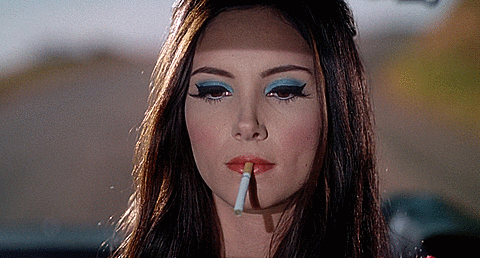
The earliest known tarot decks, such as the Visconti-Sforza deck (created around 1440), were initially used for playing card games in Italy. These decks consisted of four suits (cups, swords, coins, and batons) and featured additional cards called "trumps" or "triumphs," which later evolved into the 22 Major Arcana cards in modern tarot decks.
The use of tarot cards for divination and spellwork began to emerge in the 18th century. One of the earliest recorded instances of tarot being used for divination comes from a French manuscript dated around 1750, which describes a method of tarot card reading. This manuscript, known as the "Pratesi Cartomancer," outlines a system of drawing cards and interpreting their meanings based on their position in the spread.
Another significant figure in the history of tarot divination is Jean-Baptiste Alliette, also known as "Etteilla." In 1770, Etteilla published a book titled "How to Entertain Yourself with a Pack of Cards," which contained instructions for using tarot cards for divination. Etteilla is often credited with popularizing the idea of tarot as a tool for fortune-telling and spiritual guidance.

The use of tarot for divination and spellwork gained further prominence in the late 19th and early 20th centuries, particularly within the context of occult and esoteric societies. The Hermetic Order of the Golden Dawn, a secret society founded in 1888, played a significant role in shaping modern tarot interpretation. Members of the Golden Dawn, such as Arthur Edward Waite and Aleister Crowley, created their own tarot decks and developed complex systems of tarot symbolism and interpretation.
Waite, in collaboration with artist Pamela Colman Smith, created the Rider-Waite-Smith tarot deck in 1909. This deck became one of the most popular and influential tarot decks in the world and is still widely used today. Crowley, along with artist Lady Frieda Harris, created the Thoth tarot deck in the 1940s, which incorporated Egyptian and Kabbalistic symbolism.
Throughout history, there have been numerous anecdotal accounts of tarot divination providing accurate and meaningful insights. However, the effectiveness of tarot as a divination tool has not been scientifically proven. Skeptics argue that the perceived accuracy of tarot readings can be attributed to factors such as cold reading, confirmation bias, and the Barnum effect (the tendency to accept vague or general descriptions as specifically applicable to oneself).
Despite the lack of scientific evidence, many practitioners of tarot believe in its power as a tool for self-reflection, personal growth, and spiritual guidance. They view tarot as a means to tap into intuition, explore the subconscious mind, and gain insights into life's challenges and opportunities.
In conclusion, while tarot cards were not originally created for the purpose of divination or spellwork, their use for these practices emerged in the 18th century and gained prominence in the late 19th and early 20th centuries. The history of tarot is intertwined with the rise of occult and esoteric movements, and the creation of influential tarot decks by figures such as Waite and Crowley. Although the effectiveness of tarot divination has not been scientifically proven, many individuals find value in using tarot as a tool for personal growth, self-reflection, and spiritual exploration.
20 notes
·
View notes
Text

Smaugust Day 7: Dinosaur
I'm always nervous about making paleoart - the lack of reference photos, and the pressure for scientific accuracy raises the bar. But being able to just make a dinosaur (Chasmosaurus, in this case) into a weird dragon makes things easier.
Zoom-in shots under the cut!


Smaugust prompt list by pencilcat: [link]
11 notes
·
View notes
Text
Are certain Nakshatras Doomed in a given World Age?
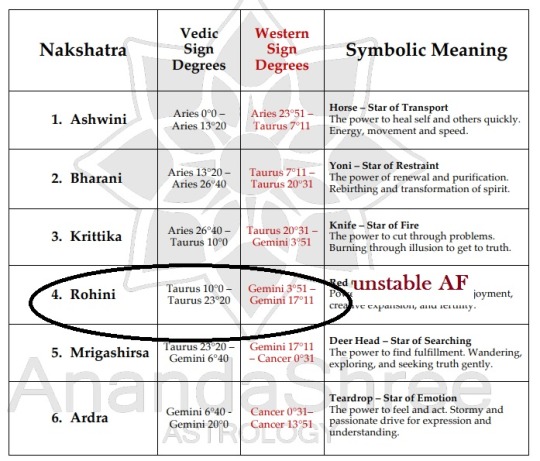
Recently I've been researching the less popular but more analytical Vedic School of Thought that superimposes Nakshatras with Tropical Placements. That means that if you cast your chart this way, your Nakshatras will stay the same, but your signs will go back to the positions of your Tropical chart. I respect that idea although I don't fully feel convinced of it yet because I respect the Astrologers that use it (Ernst Wilhelm, Vic di Cara) and because there is some scientific reasoning behind it, given that the Earth's orbit is irregular and tilts over the years, thus changing the calculations, which they call precession of the equinoxes. I admit the mathematical part of it is not my strong suit, I'm a psychic medium that just loves to use Astrology to share her impressions, but I'm not a brilliant mathematician and I'm an even worse physicist, largely due to lack of proper opportunities for a good teacher that would be needed to compensate for my more abstract way of thinking.
/edit months after writing this article I have official transitioned to Ernst Wilhelm's school of thought due to high research accuracy, I recommend this calculator to find your right signs and Nakshatras.
The issue with the degrees of the signs moving at certain historical periods of time is that not all Nakshatra signs and rulerships are compatible with the newly changed Astrological sign values. That creates problems in perceptions of certain Nakshatras in Mass Consciousness in our time. However, if we assume the degrees of Nakshatras as mobile...some Nakshatras are going to struggle at any given time, except for the time when Nakshatras are temporarily perfectly aligned with their traditional degrees (which last happened briefly 1500 years ago and won't happen for millennia to come according to THIS link resource). So due to the precession of the equinoxes, the degrees of Nakshatras are always mobile...which can cause interesting shifts, such as the New Astrological Year starting in a completely different than traditional Nakshatra, so not Ashwini. Right now for example, according to tropical calculations we are entering the Aries season in the Nakshatra of Uttara Bhadrapada, making this Nakshatra the initiator of each solar cycle for years to come...until the Nakshatra degree changes again in a couple of hundreds of years, and the Aries sign will be ruled by Purva Bhadrapada instead.
Astrologers preaching this School of Thought educate not associating Nakshatras to any specific cycles or zodiac signs, viewing them as seperate entities dependent on the Moon's mythology more than the whole chart or movements of the Sun over the horizon...but I just can't get behind that concept, given that...well, the Nakshatras are still determined by SOME kind of calculations. The Nakshatras are not exempt from the unwavering rhythm of nature. I wrote a lot of posts with elemental associations to the Nakshatra and their planetary rulership (which btw doesn't change even if you go by tropical degrees) because Nakshatras are living entities...and they enter our lives through our charts as a portal...but still based on these new and improved calculations. I can get behind the numbers changing as the planet itself evolves, given the pressure of the chaos of Nature, but it simply cannot be separated from the signs of the planets, as both influence them. Sure, you can study it independently, but the final result is still going to be a planet influenced by both its sign and house AND the ruling Nakshatra.
That creates an interesting result, that in given world ages, certain Nakshatras will struggle to begin with, while others will struggle more in certain padas, making their Divine Energies harder to exist at a given time frame. If I started moving the Nakshatras around in different time periods, we could be sitting here forever discussing all sorts of hypotheticals, so for the purpose of usefulness to this generation, let's stick to the way things are now, and will be for at least the next 100 years, since the changes in degrees are slow (but still, sign calculations already moved almost a whole degree just since I was born and I'm not that old yet lol). Again, to understand my writing consult the table in the link above.
An example Nakshatra that came to my mind, that is perceived really negatively in this world and age is Rohini. Why? Because to have that Nakshatra in your chart, you need to have a given planet in the sign of Gemini. Considered that Rohini is Moon ruled, and Mercury views Moon as its enemy according to planetary friendship tables, Rohini essentially doesn't like being in the Mercury ruled sign of Gemini. Traditionally, Rohini is positioned in the Venus ruled grounded Taurus, which is already problematic to begin with, since Venus views Moon as its enemy too...but the Moon is still exalted in Taurus. The Moon is grounded and settled by Venus, as it has no enemies. The Moon is scattered, curious, but two faced and unstable in Gemini. Now what do we get when we put Rohini, an emotional, impressionable Nakshatra ruled by the Moon, away from Venus and into Mercury? An attention seeking person, that uses duplicity and manipulation to fulfil its need for intimacy. Historically, the Venusian element provided stability of skill and material resources, grounding the Nakshatra energy. Nowadays, Rohini can display more fickleness than form. And it is not even their fault...but the fault of when they were born. In the past, being born in Rohini probably provided one with serious material stability and good family pedigree, which Venus assures, making her a worthwhile wife, or as they say traditionally, the favourite wife, despite her whimsical nature. To understand more about the dark Nature of Rohini in our times, I encourage you to watch this video by @thehiddenoctave, where the theme of manipulation and mind games is explored in depth.
Another interesting example to explore is Shravana Nakshatra, which moves its Rashi from Capricorn to Aquarius. That preserves the Saturnian theme, but adds the energy of Rahu to the mix. Notice the stories that surround Shravana natives. First of all, they get media attention very easily. A lot of actors/actresses with these placements are idolised. Then a lot of them are also viewed as toxic, unstable or taboo breaking (Rahu, but also the Outcaste nature of the Nakshatra). But the media attention so many of them get nowadays...the scrutiny of the tabloids? That's Rahu and Aquarius at its finest. The rise and fall. The highs and lows. My guess is, historically this Nakshatra was more private due to Capricorn's restrictive nature, but has gained more exposure with Rahu...which has also sadly added a lot of trauma to its natives.
Certain Nakshatras are doing better, and still have at least some portion of them in their traditional signs, temporarily letting them off the hook. But that raises an interesting question. What will happen to a phenomenon such as Sun's exaltation, once the vernal equinox moves on to the Nakshatra of Purva Bhadrapada in a couple of hundred years?
Sun traditionally exalts in Ashwini Nakshatra...but that has to happen in the sign of Aries. What will happen when the precession of the equinoxes moves Ashwini completely into the sign of Taurus...where the Sun is uncomfortable, due to Sun and Venus being enemies? The potential for an individual to have a fully working, exalted Sun will be eliminated for that particular time in human history.
And isn't that what we are going towards? Sun rules our independence and individuality...yet we are more and more dependent on technology, connections, societal conditioning, in order to have any freedom at all. More and more finances are required for a person to have any mobility or opportunity in the world. In a couple of hundred years, when the Aquarian astrological dominance intensifies, independence or individuality that goes with an exalted Sun will no longer rely on the power of Spirit, that Aries represents, but be completely dominated by the luck of being born in a stable financial family environment, which Taurus represents. So those who have the power to express themselves are those, who can afford it because they have a stable enough backing. Since Ashwini is partially already in Taurus, we can already see it happening in the world, slowly and gradually.
I understand traditional Vedic Astrologers sticking to perfect symmetrical calculations from 1500 years ago. I understand their love for this perfection scheme. I understand the exploration of the cyclical nature of Nakshatras. I do it myself. But I think that this is nevertheless an interesting concept to explore, that takes Astrology to a whole new level, accounting for very real societal changes gradually taking place in front of our eyes. It shows that Nakshatras behave differently in different timeframes, responding to the world we live in. And doesn't that add a very real and practical dimension to Astrology, its omnipresent influence on Earth as a living being, regardless of the phases its going through?
#astrology#vedic astrology#jyotish#vedic astro notes#vedic astro observations#astrology notes#astro observations
82 notes
·
View notes
Text
Four separate governmental scientific bodies have concluded that bite mark analysis has no basis in science. That includes the President’s Council of Advisors on Science and Technology, which said in 2016 that “available scientific evidence strongly suggests that examiners not only cannot identify the source of bitemark with reasonable accuracy, they cannot even consistently agree on whether an injury is a human bitemark.” The National Institute of Standards and Technology, the gold standard of measurement science, said in 2022 that bite mark forensics “lacks a sufficient scientific foundation” because “human dental patterns have not been shown to be unique at the individual level.”
One 2016 study found that self-described experts couldn’t distinguish between human and animal bite marks. Others have documented how marks in human skin change over time through healing or decomposition.
“People that were board certified did not agree about what a bite mark was,” said Adam Freeman, a forensic dentist who once “drank the Kool-Aid” of bite mark analysis but has since become one of its biggest critics within the profession. “If a science is not a science, and it’s not reproducible, and it’s not reliable, courts of law should not allow it in, period.”
Yet bite mark analysis has been used in thousands of cases. And while it has increasingly been successfully challenged by defense lawyers, no court has ruled it inadmissible.
21 notes
·
View notes